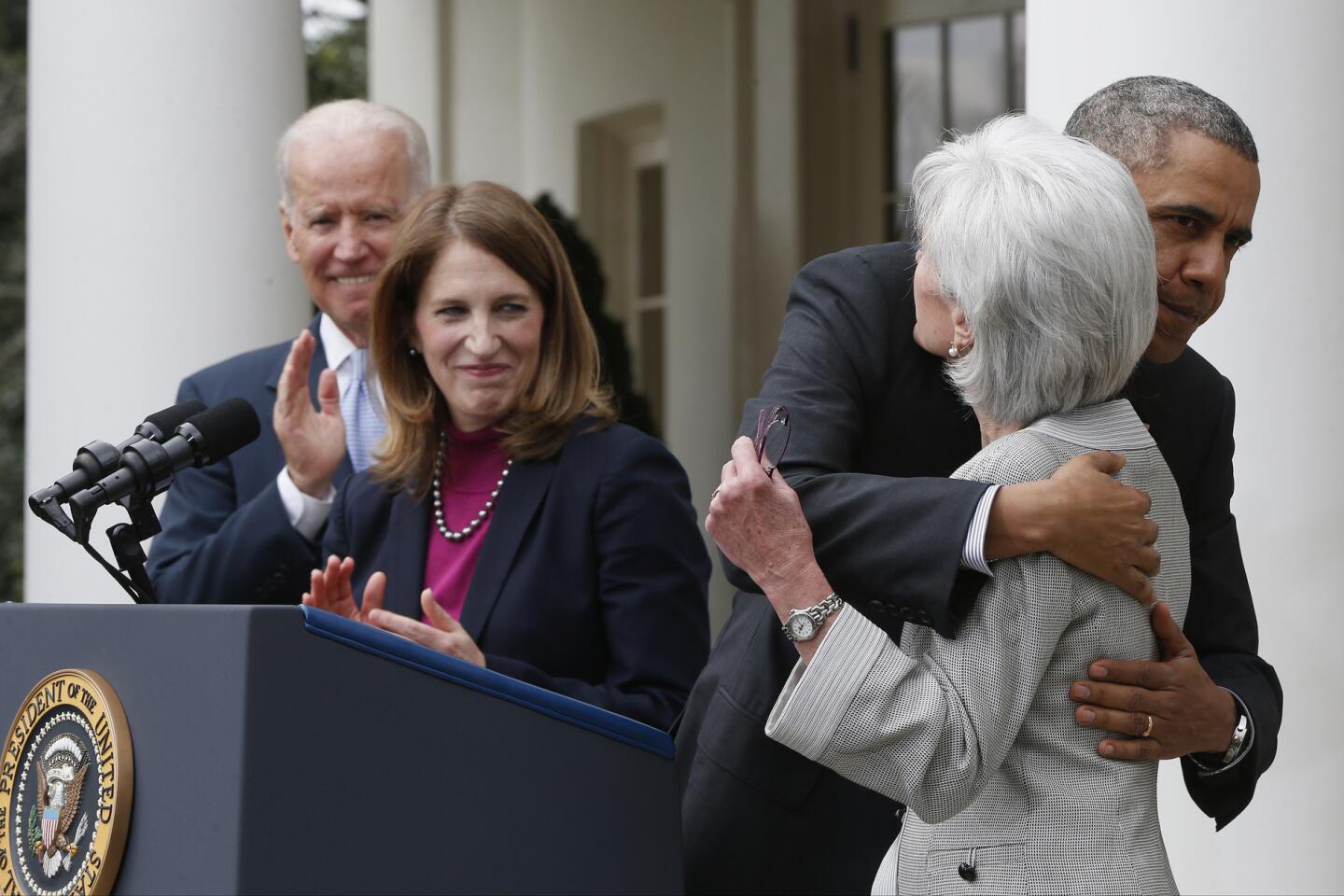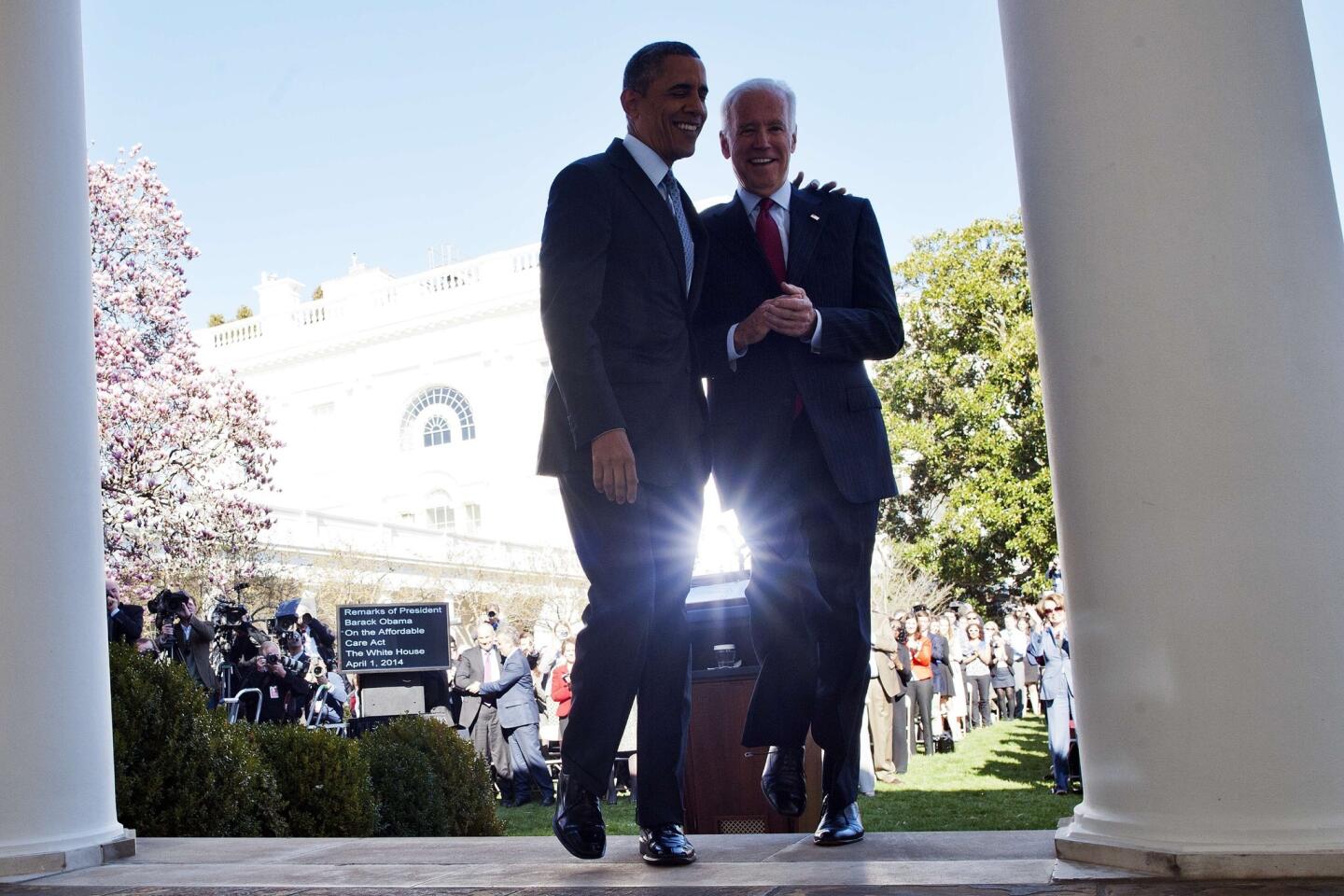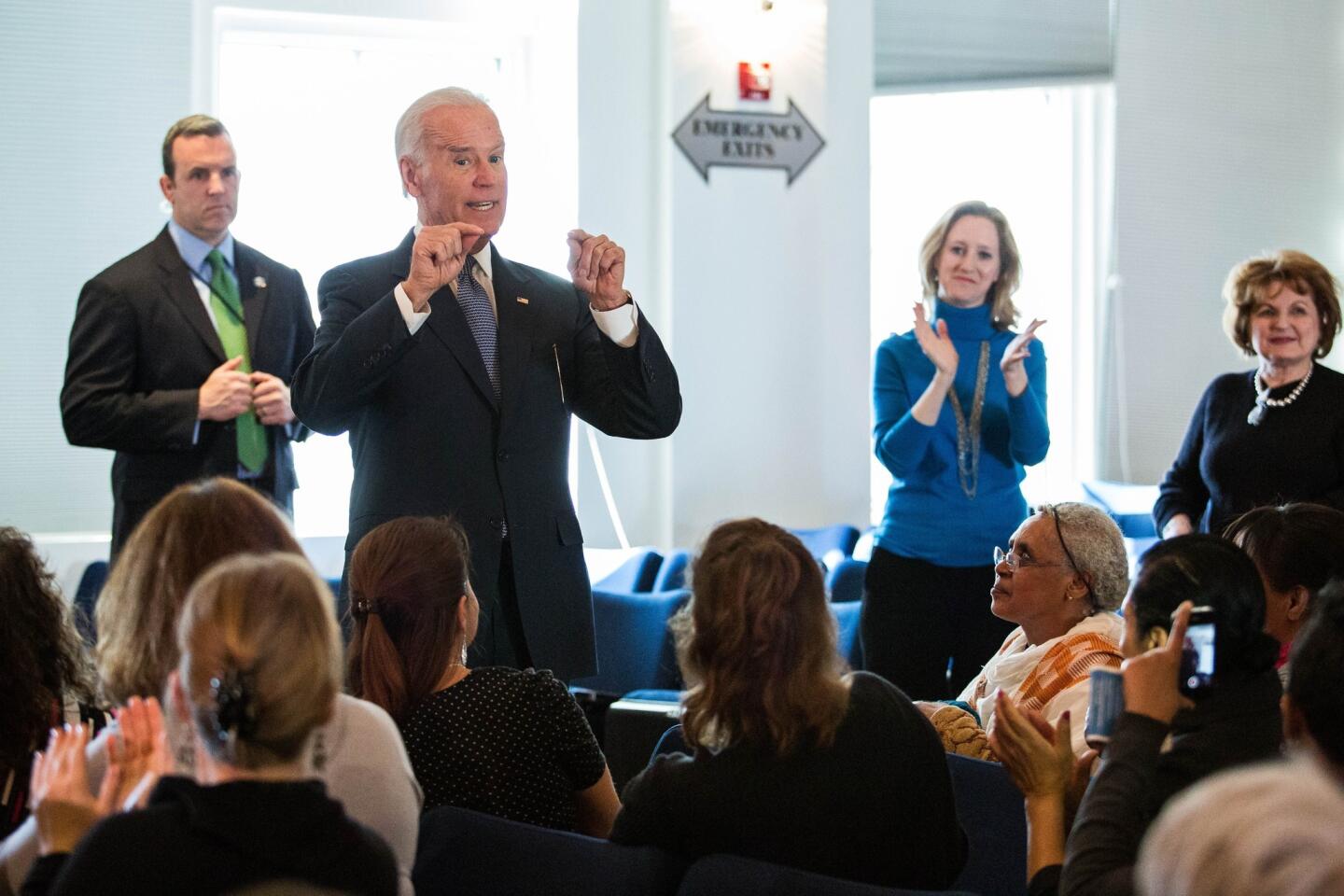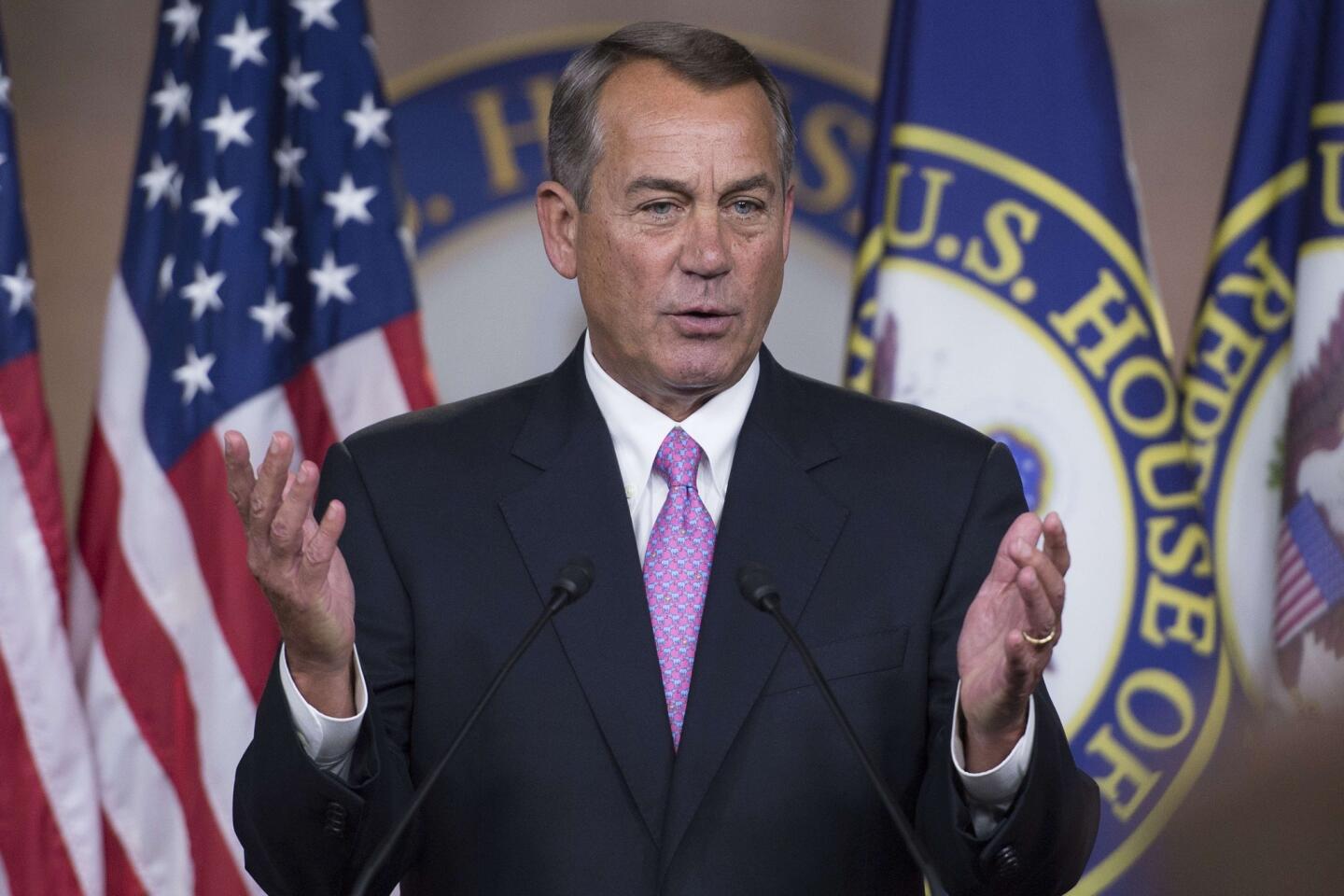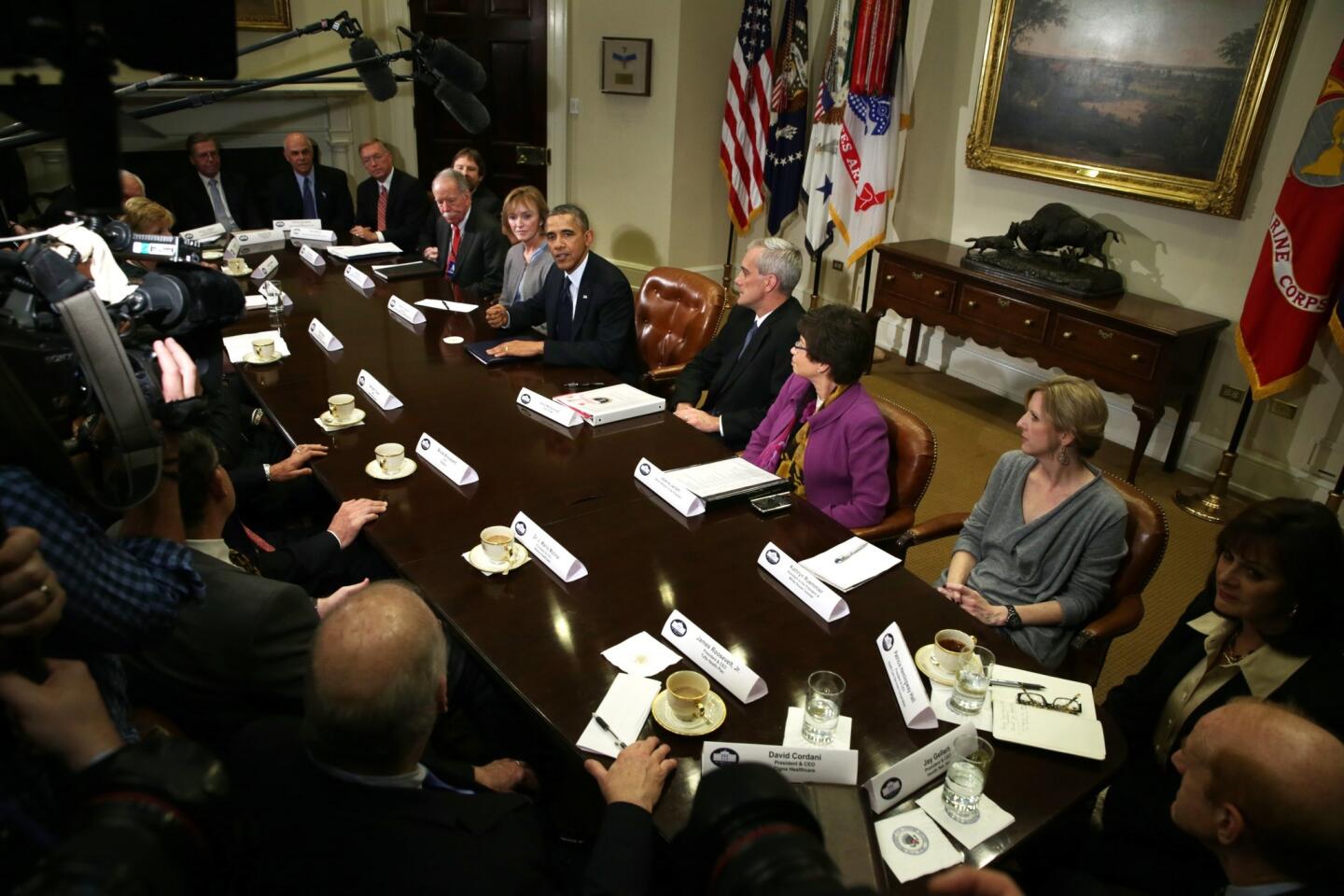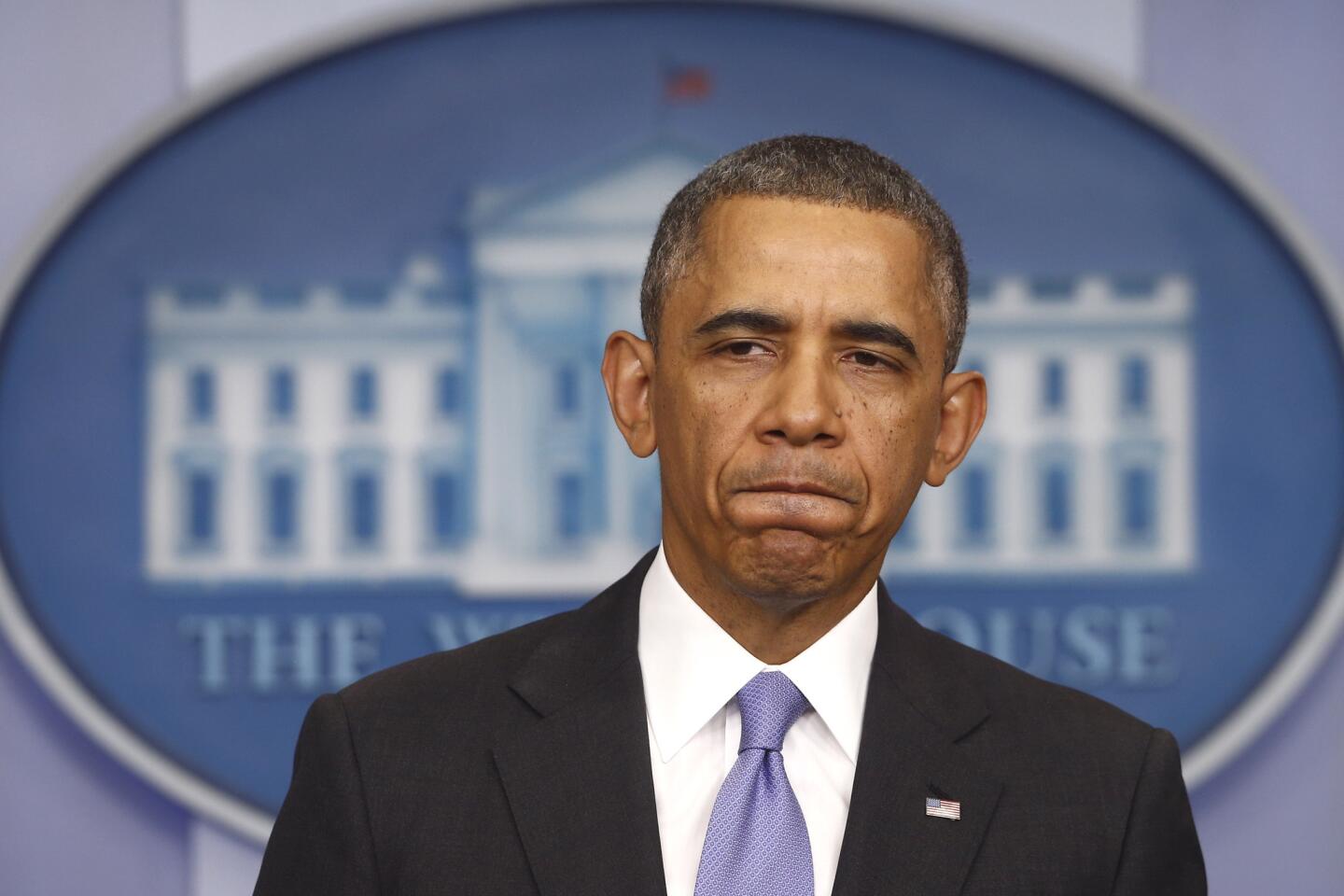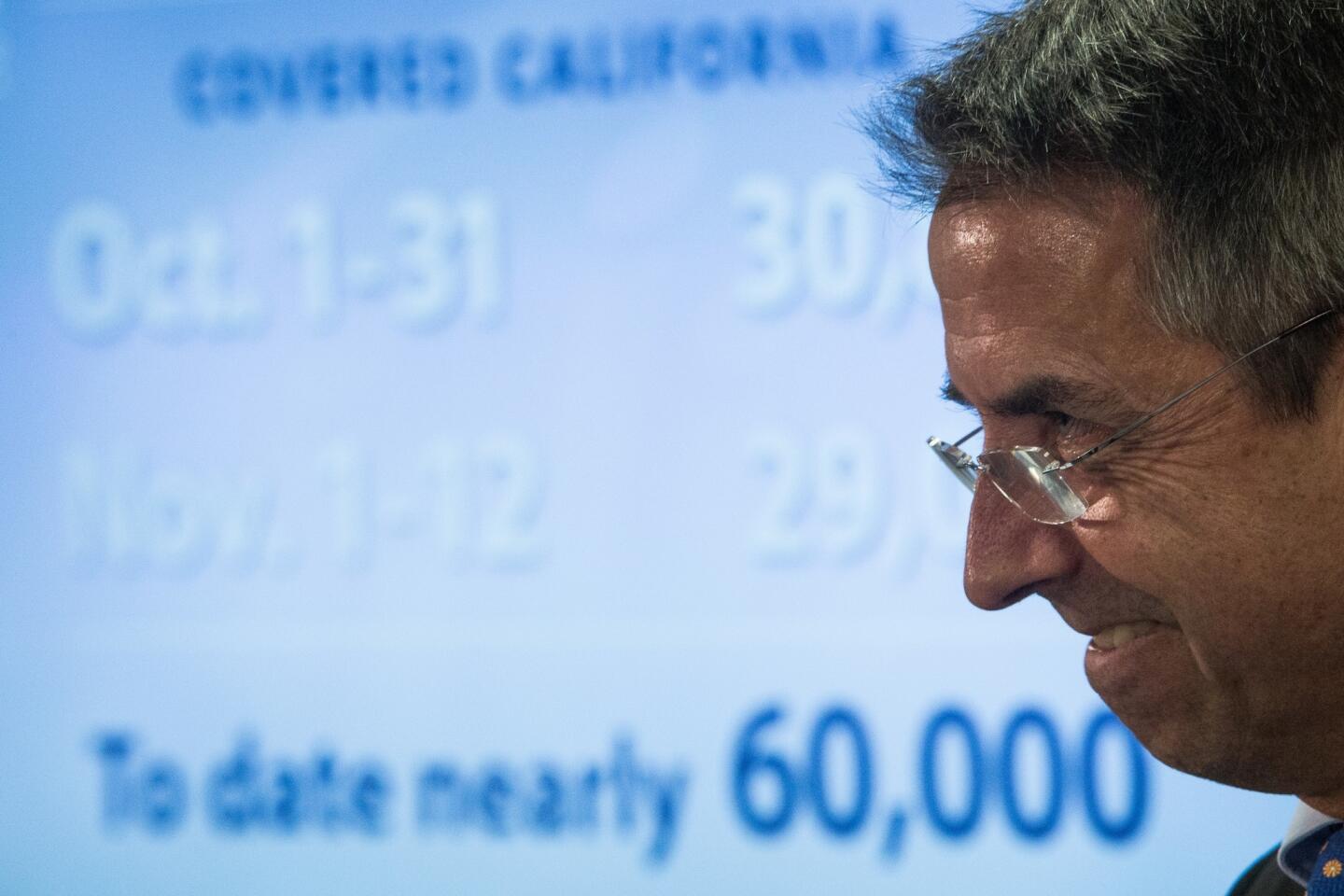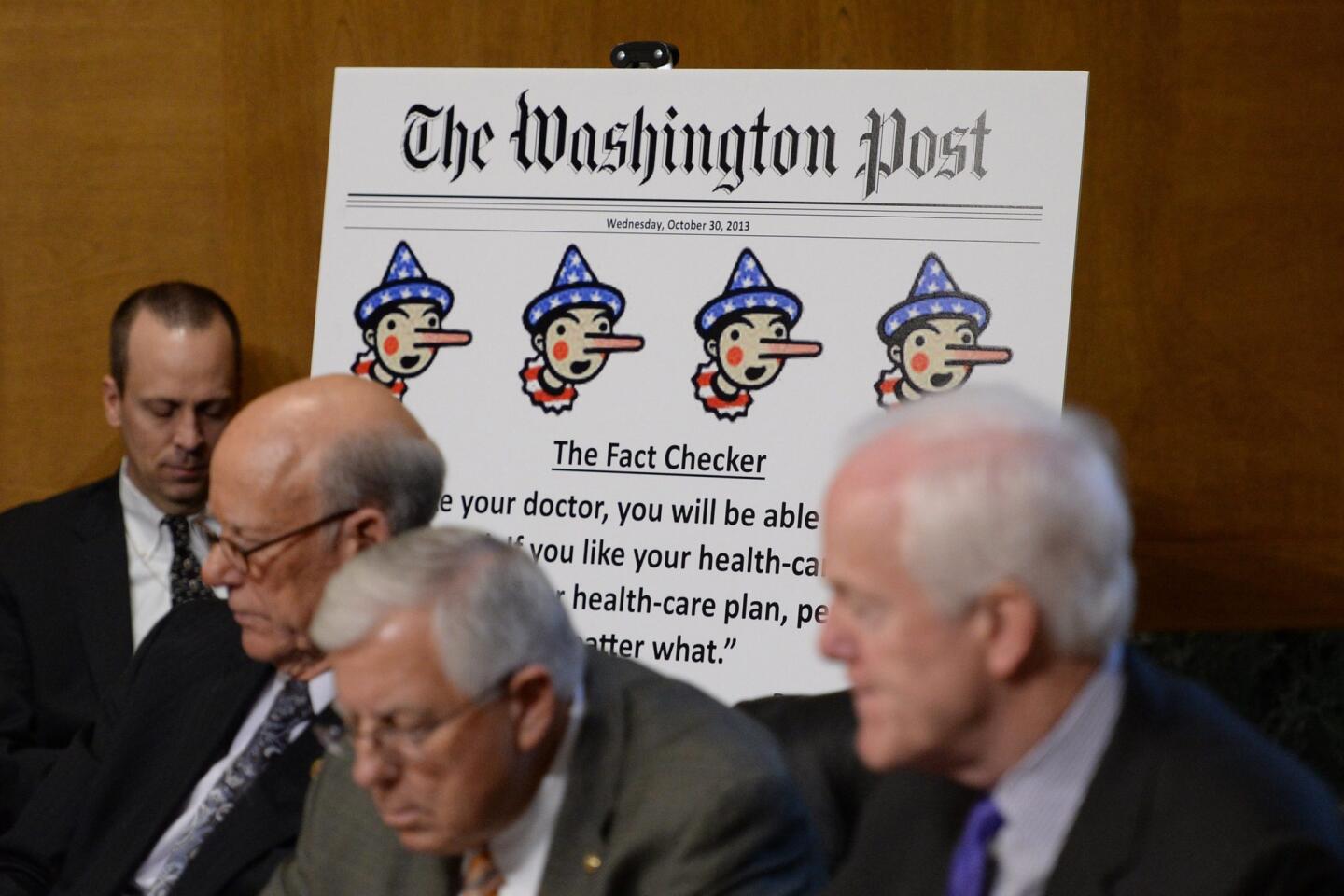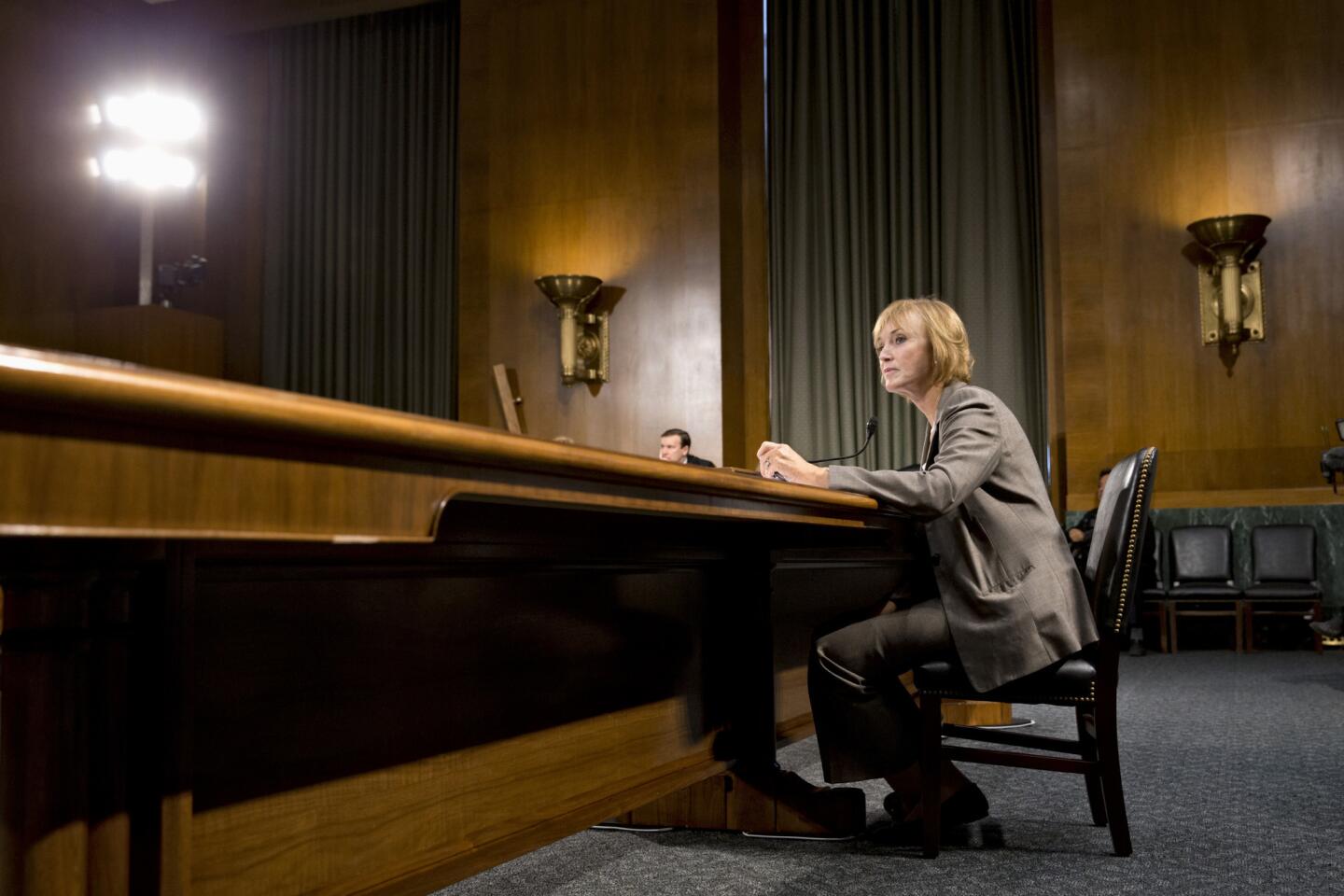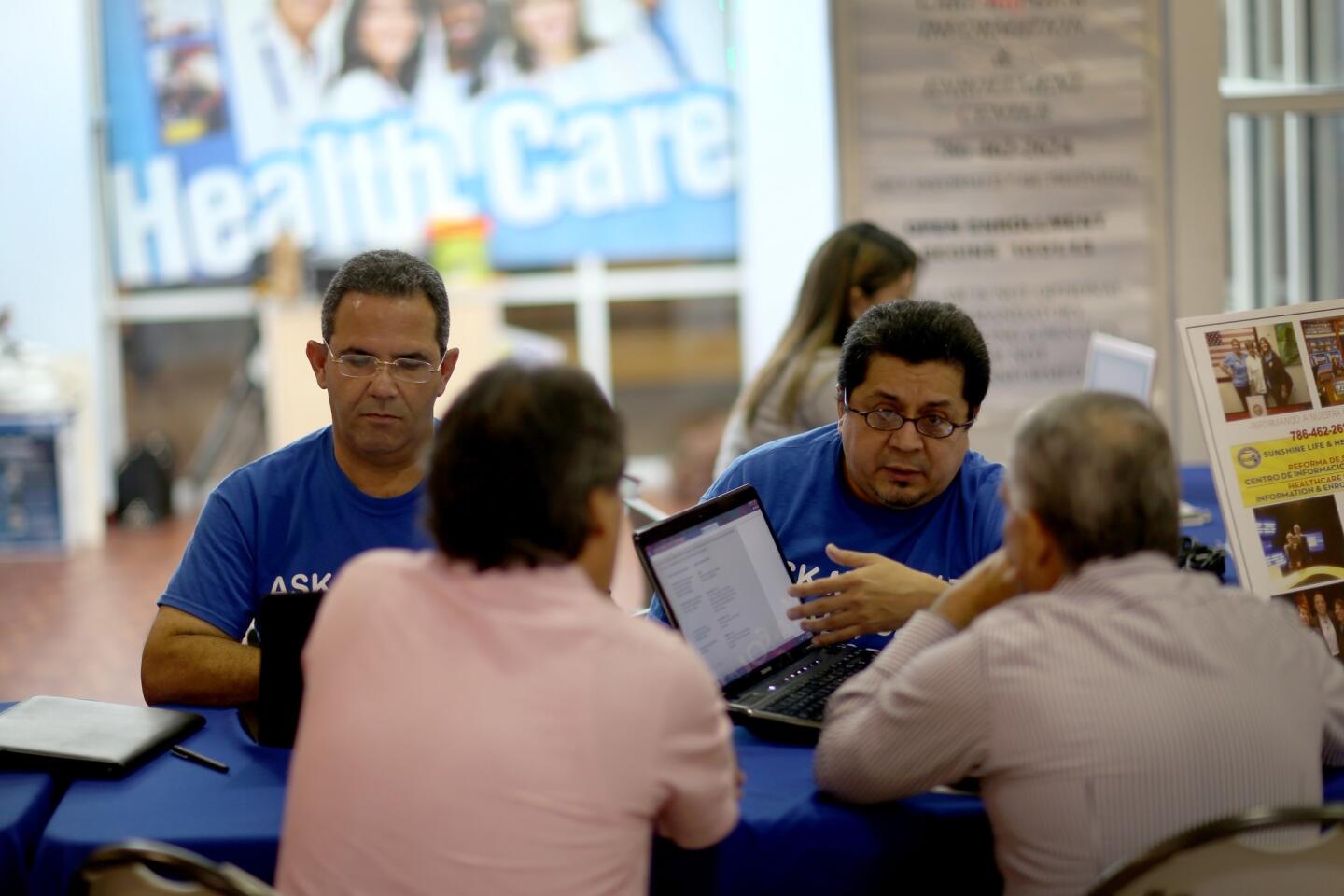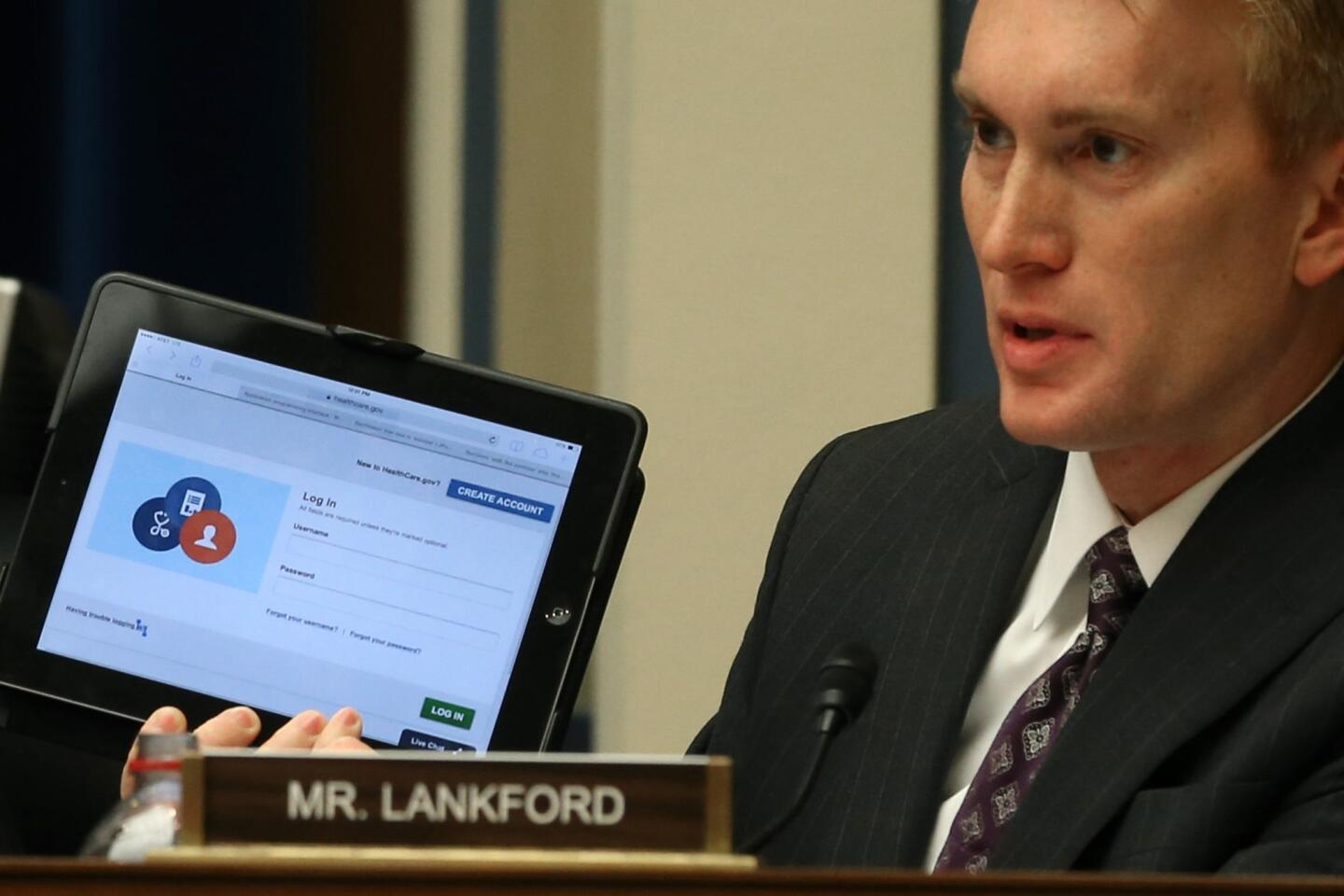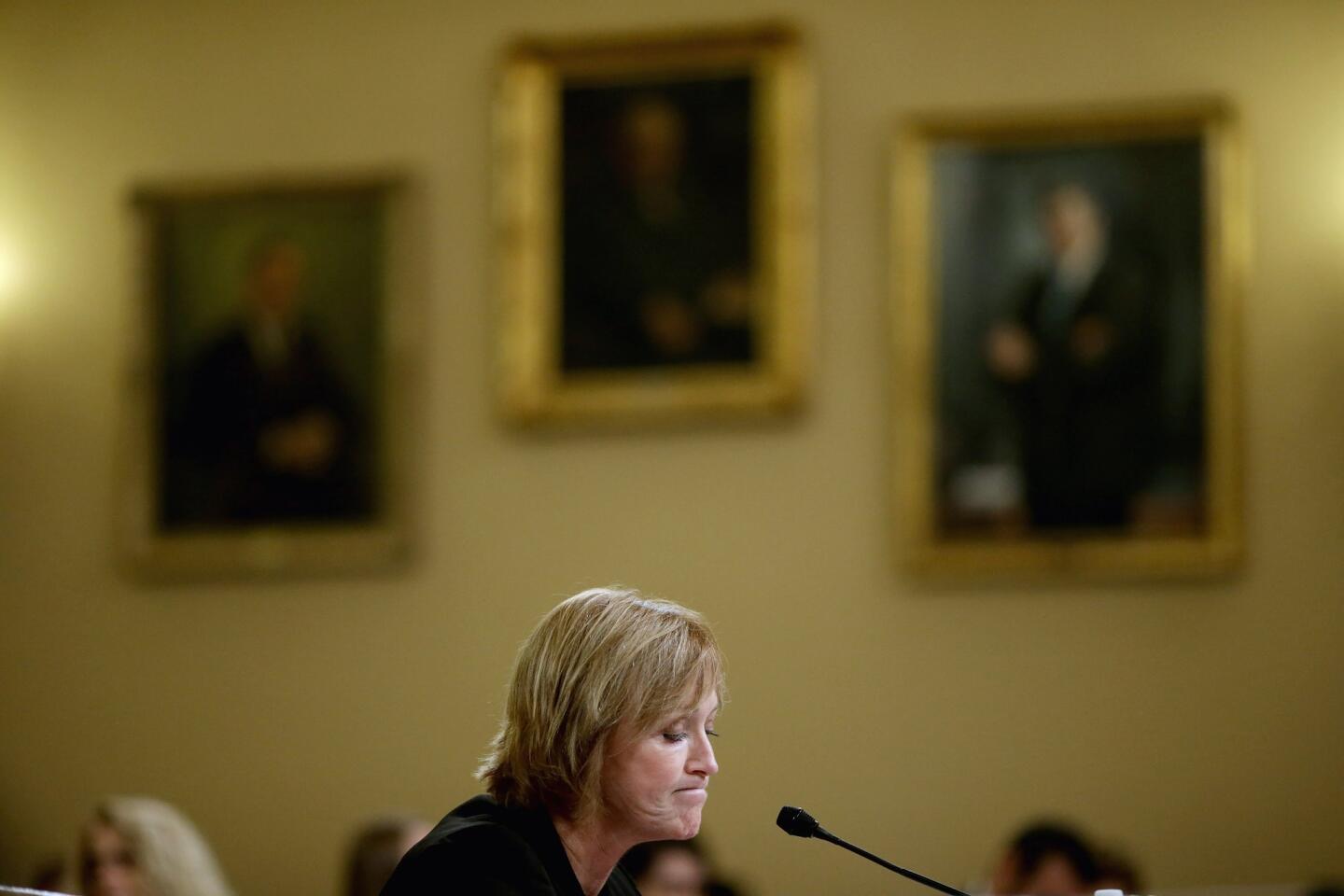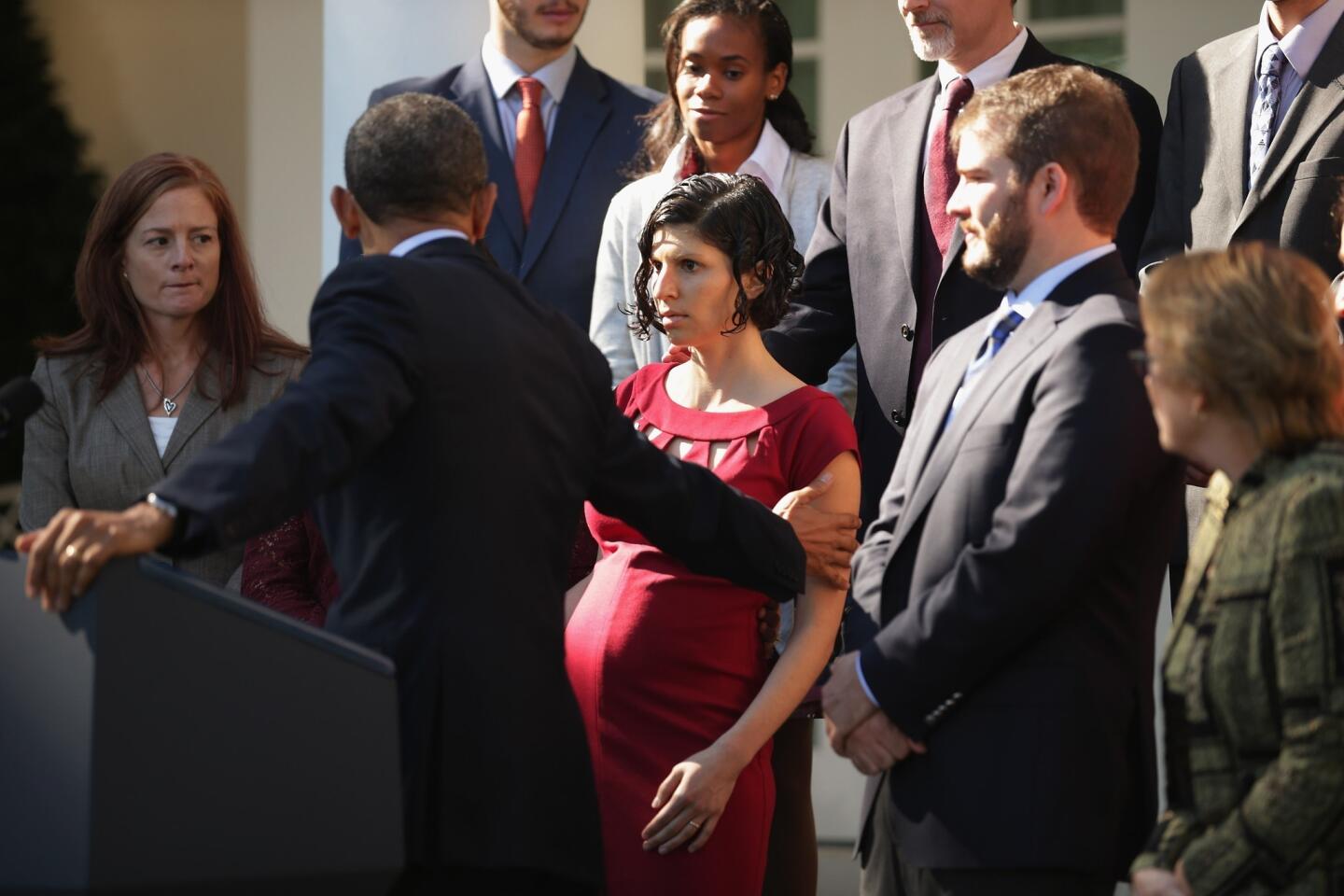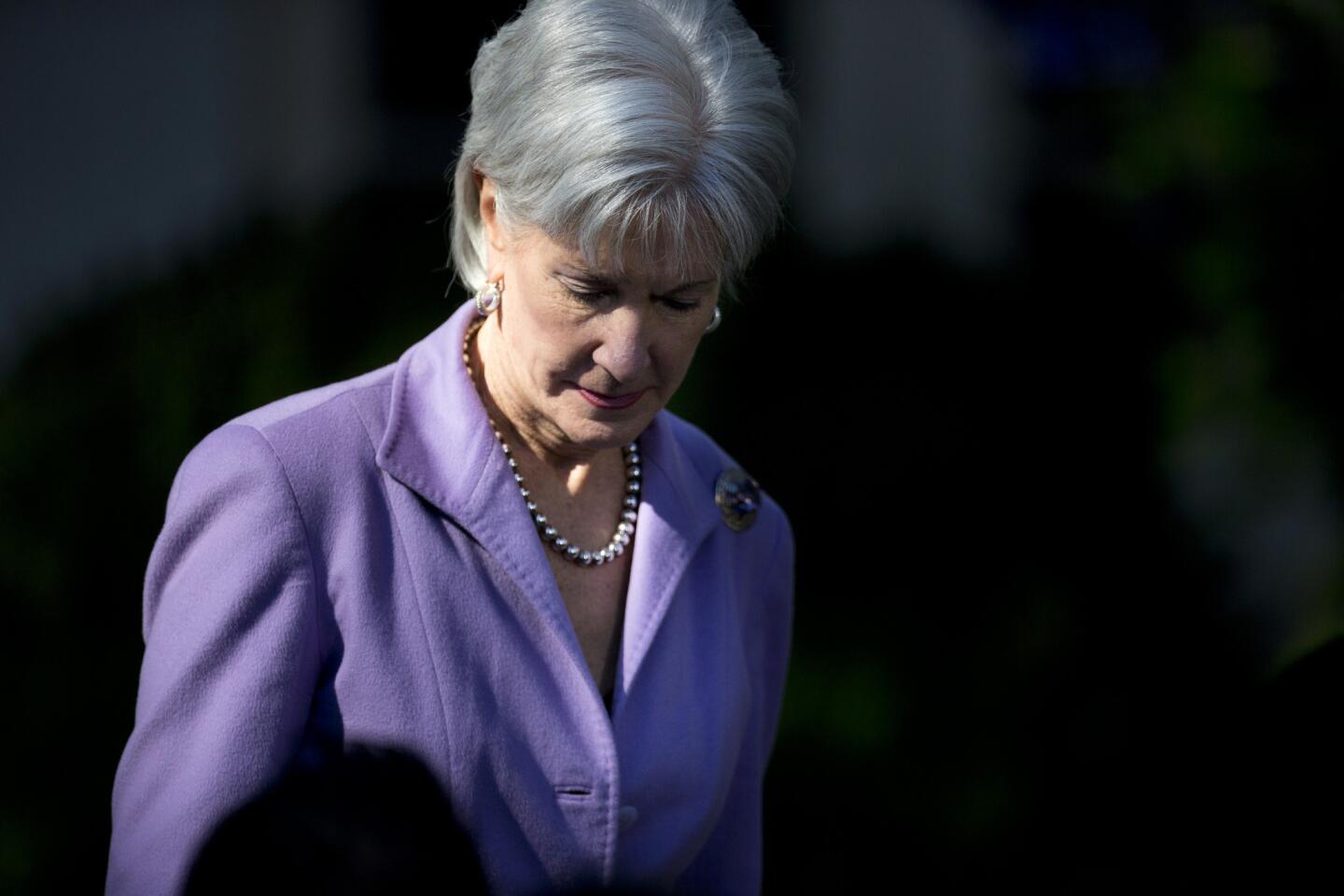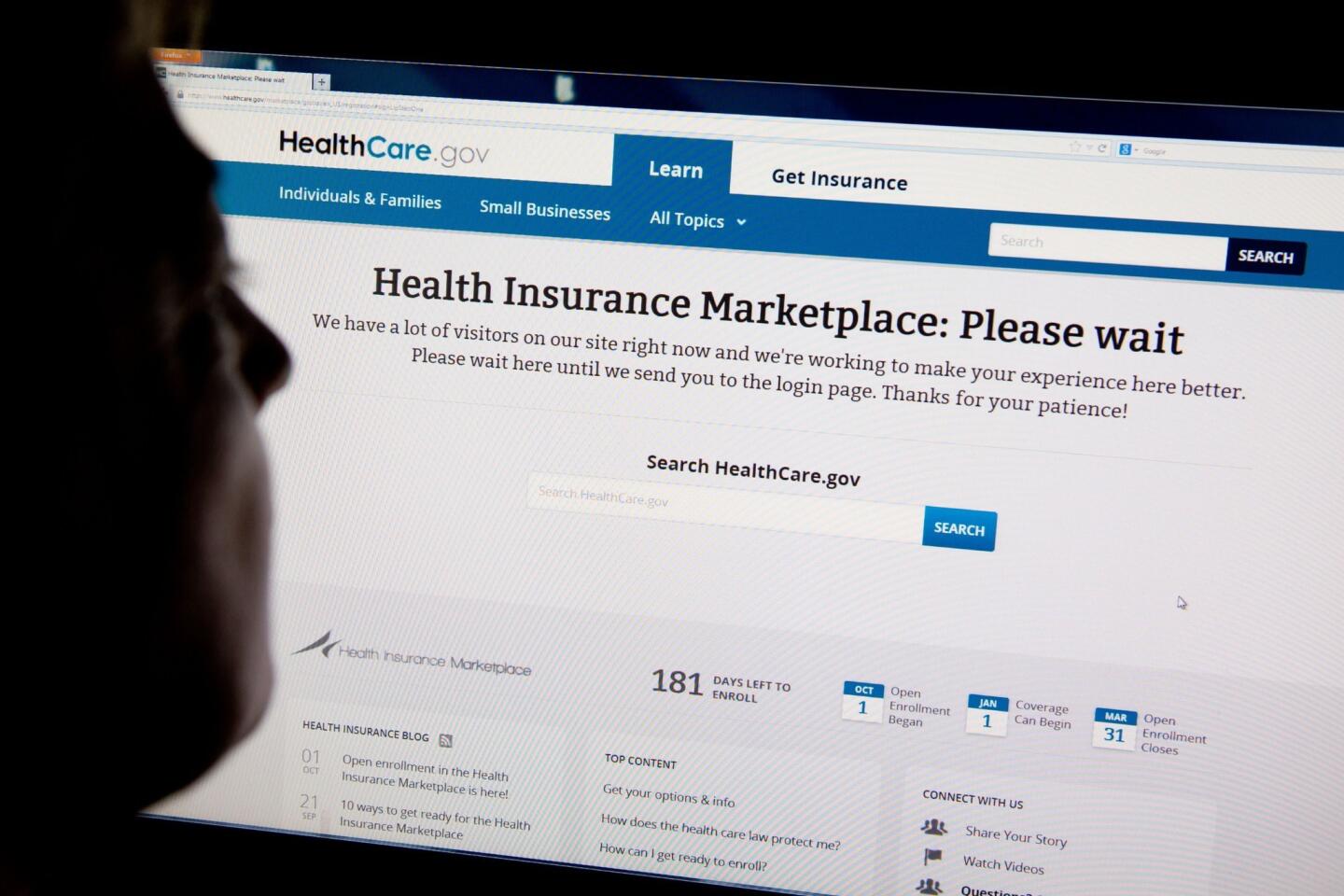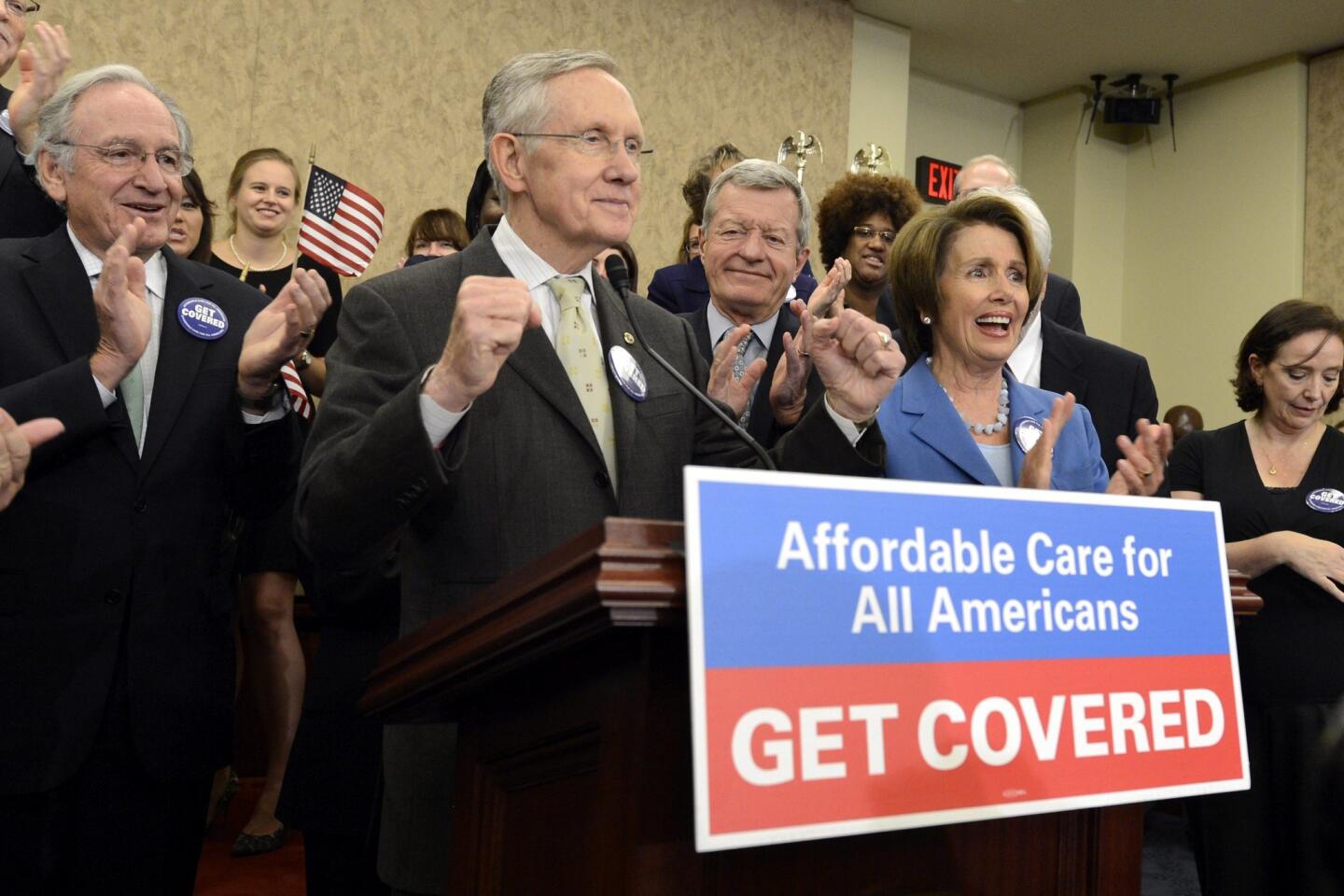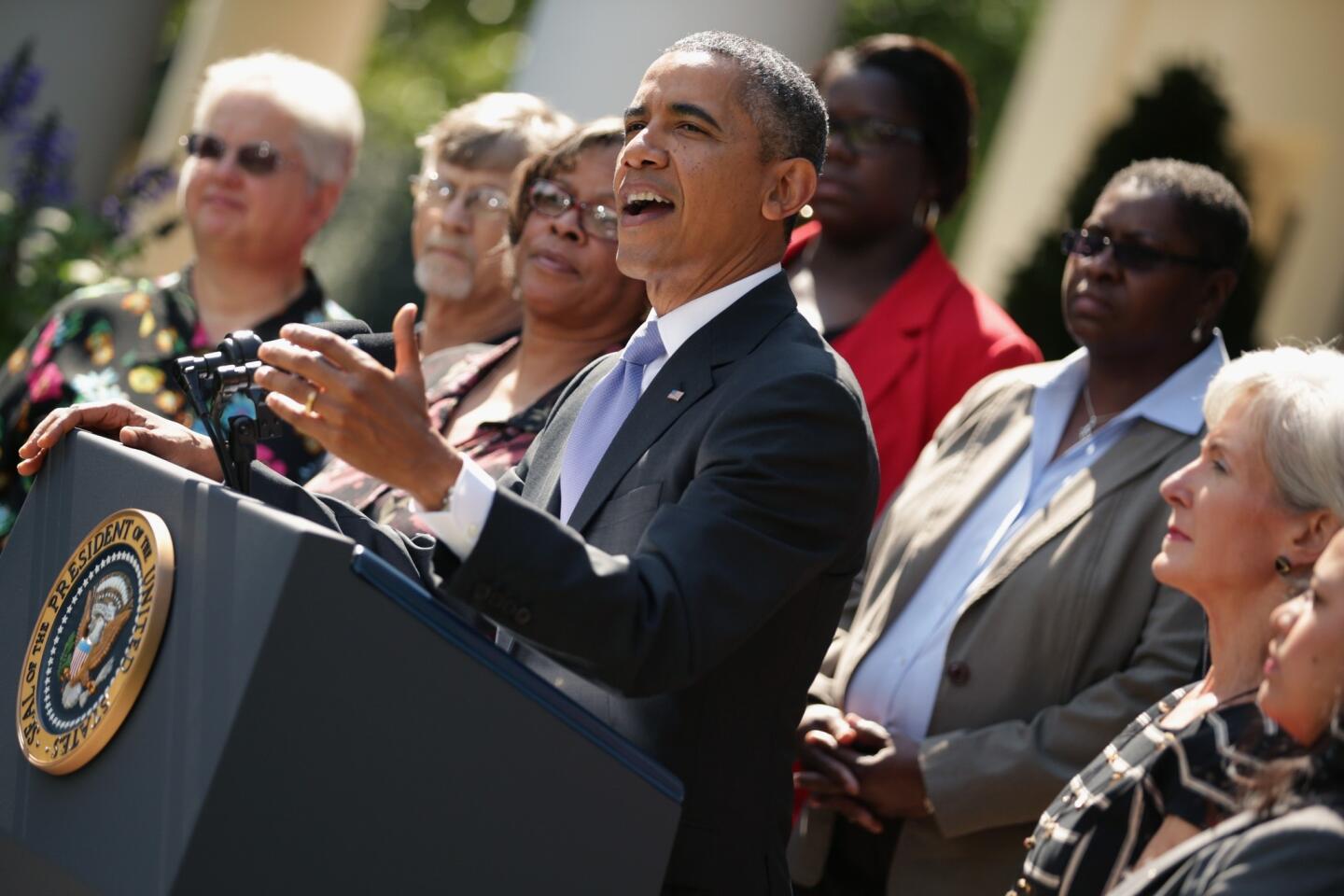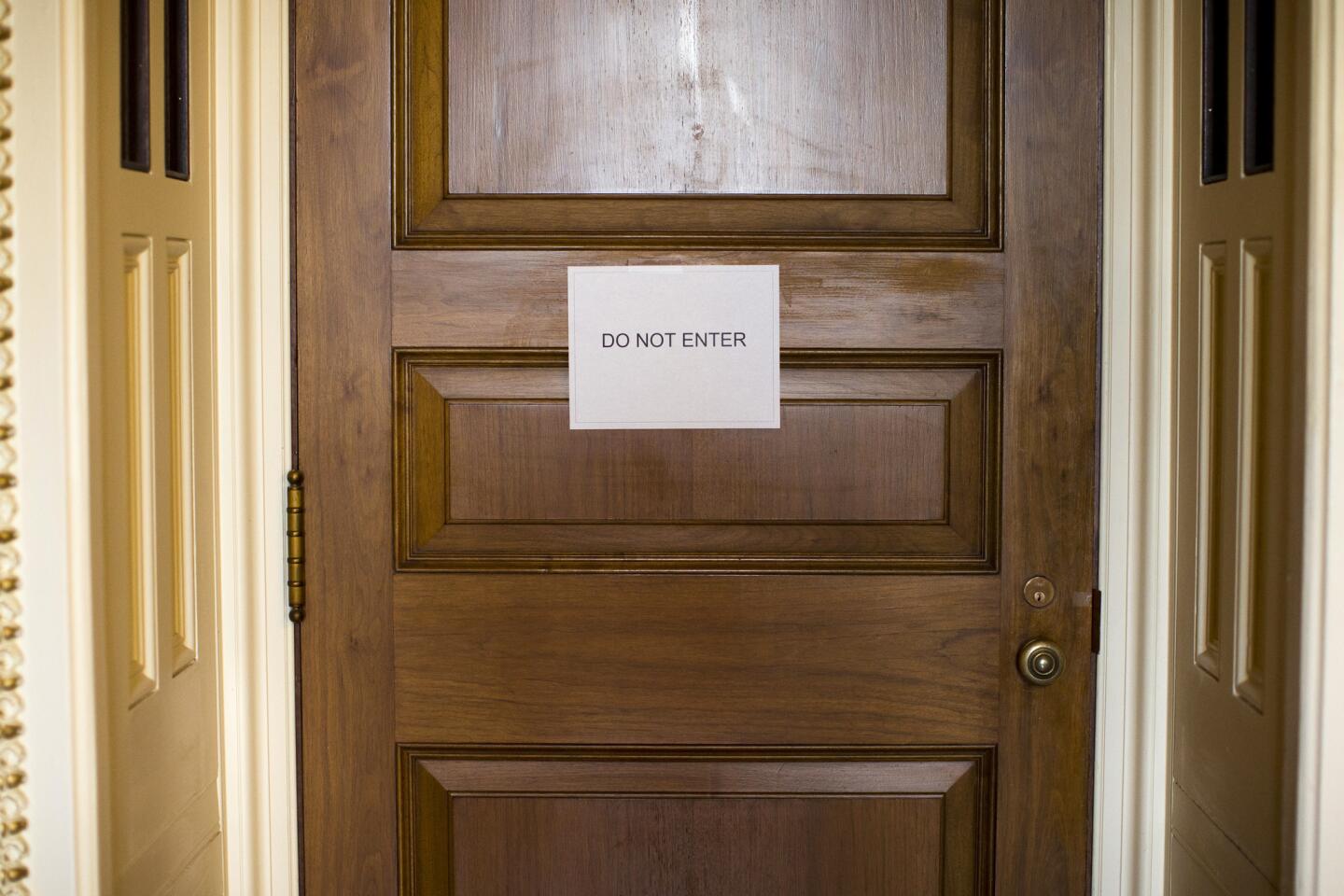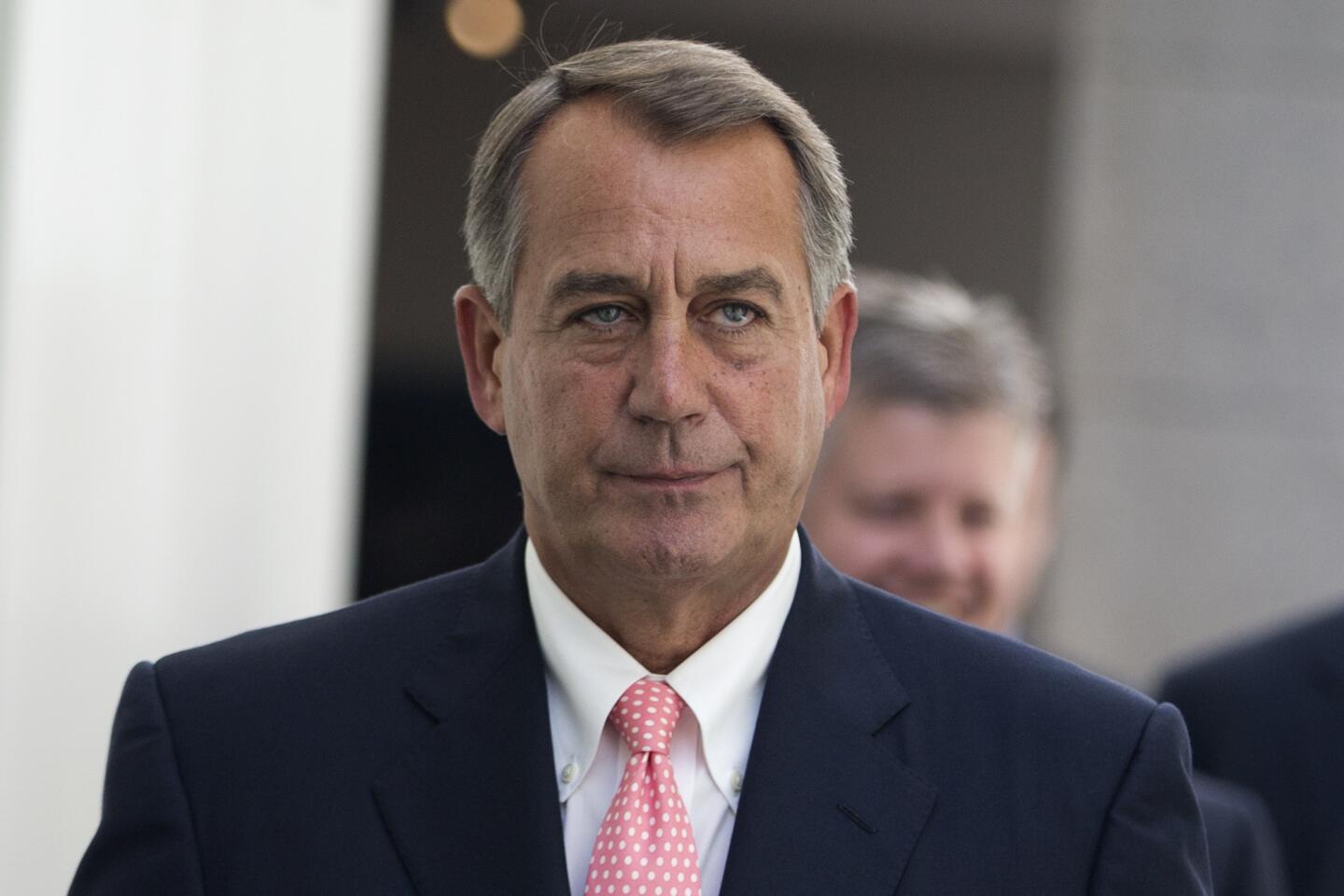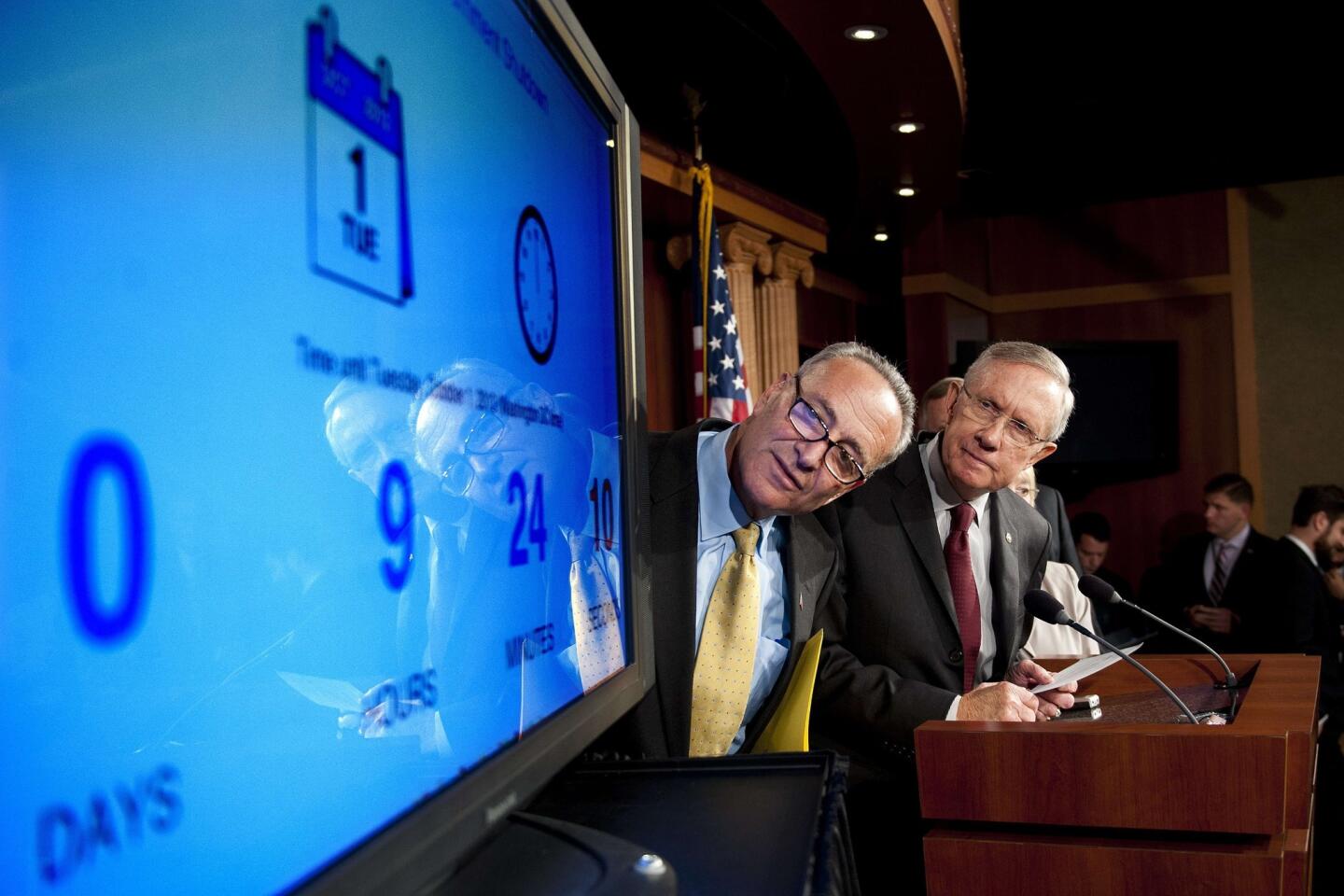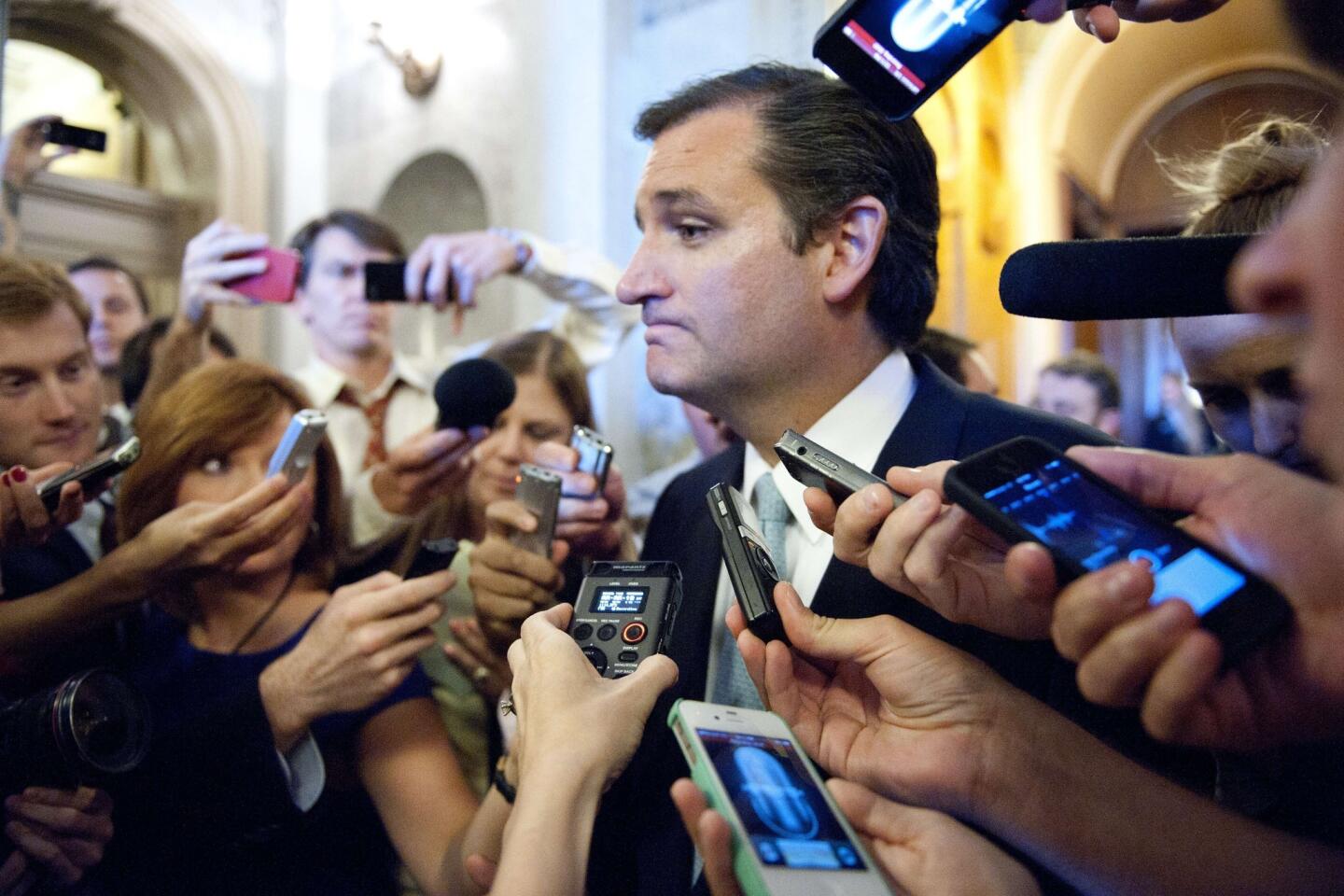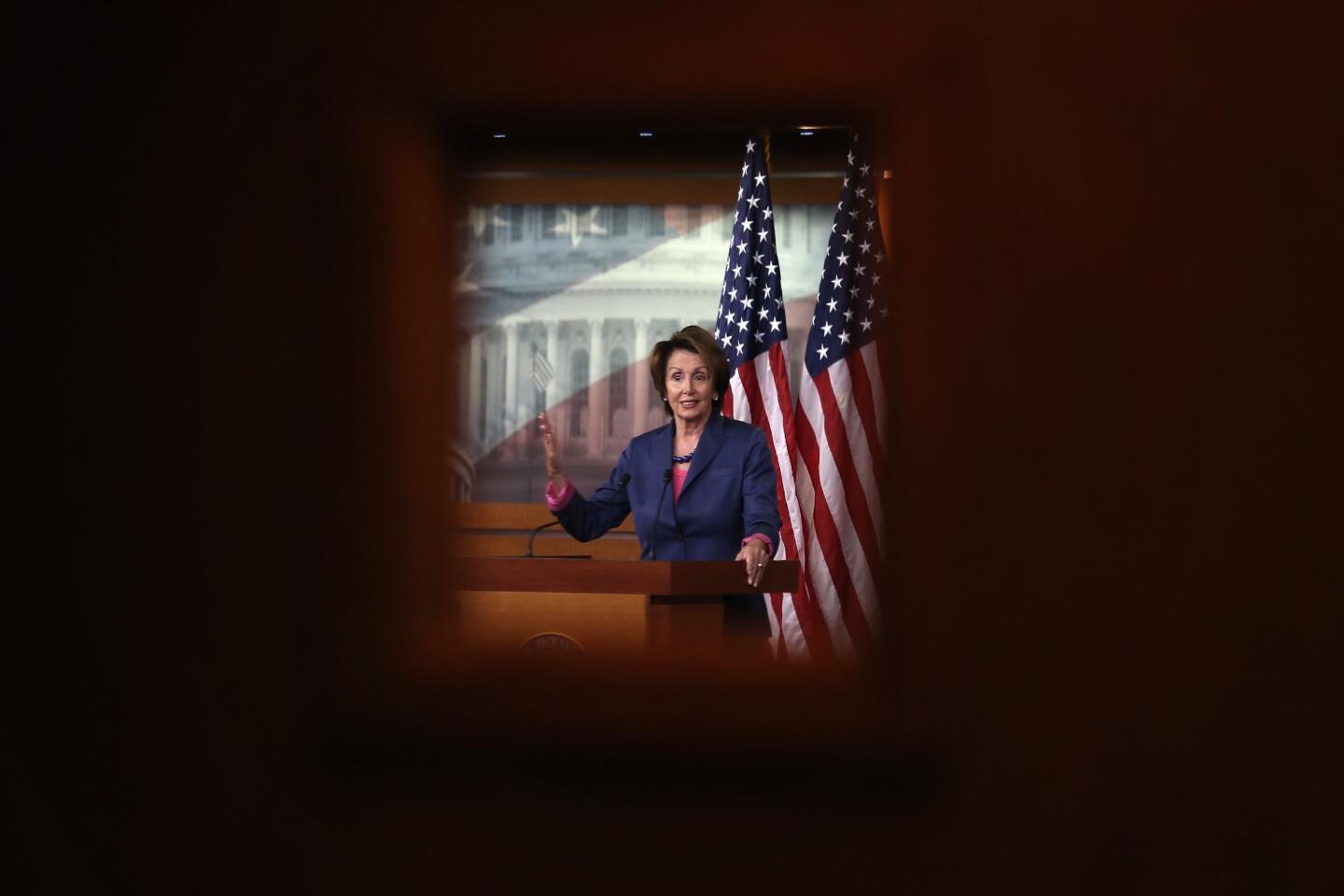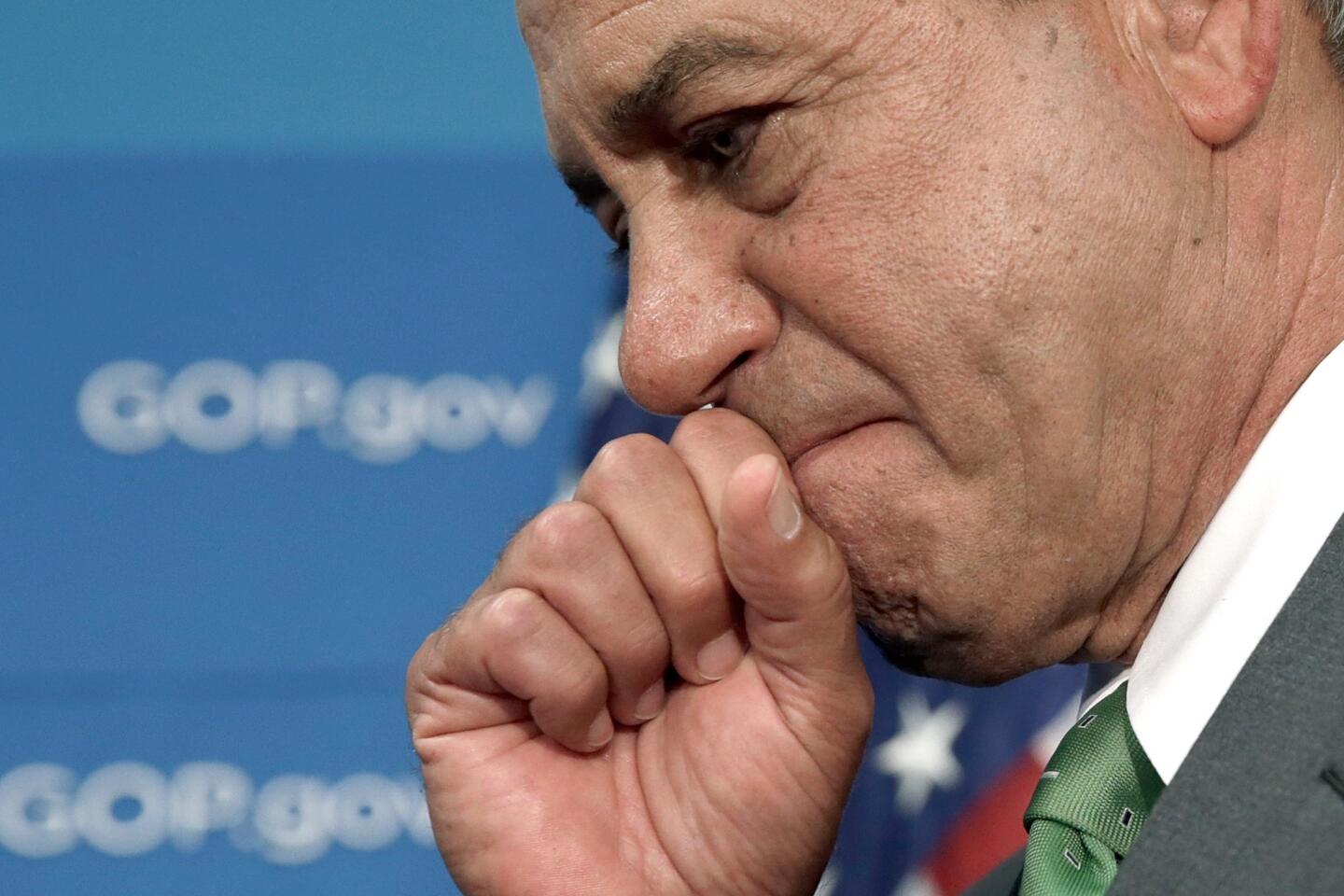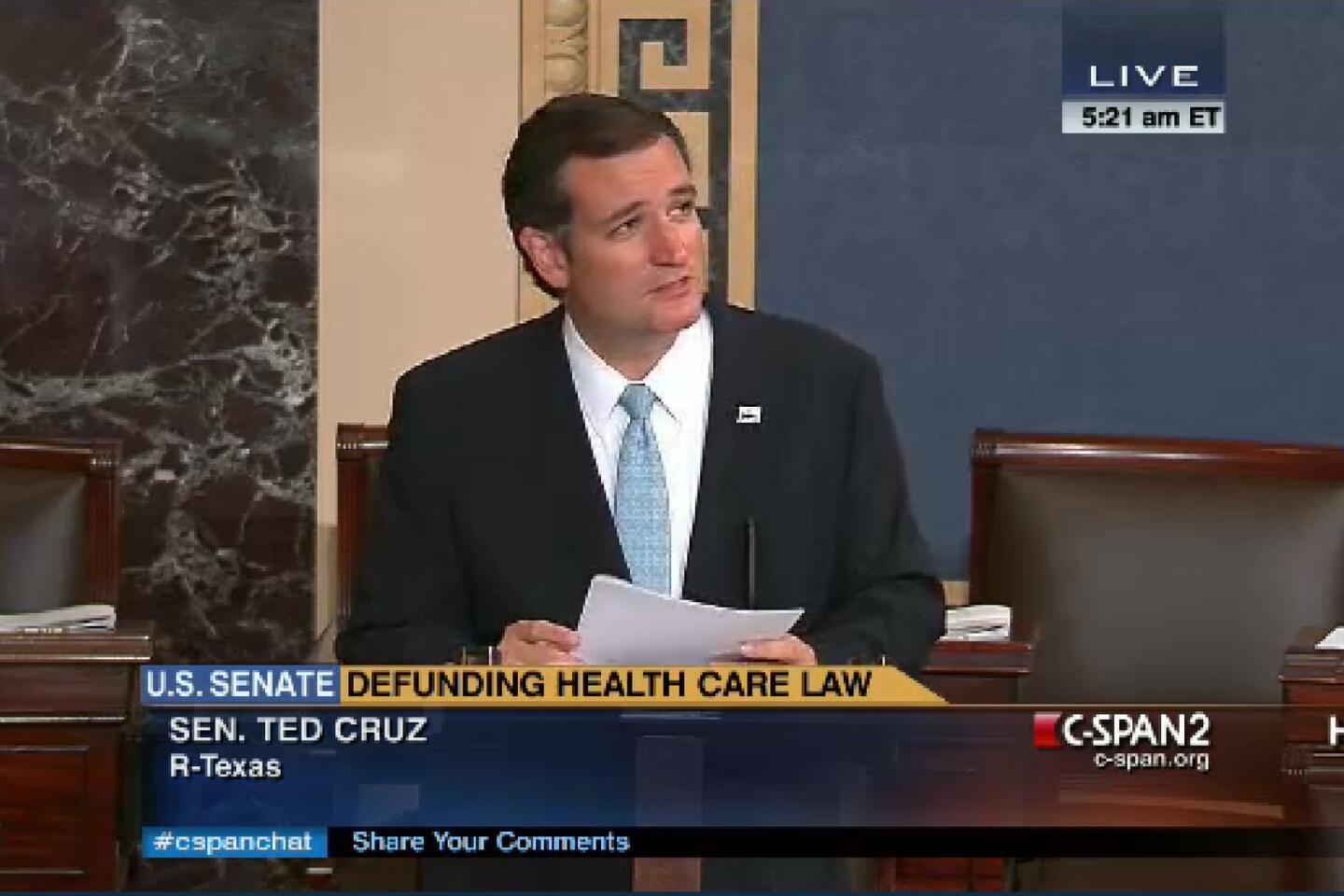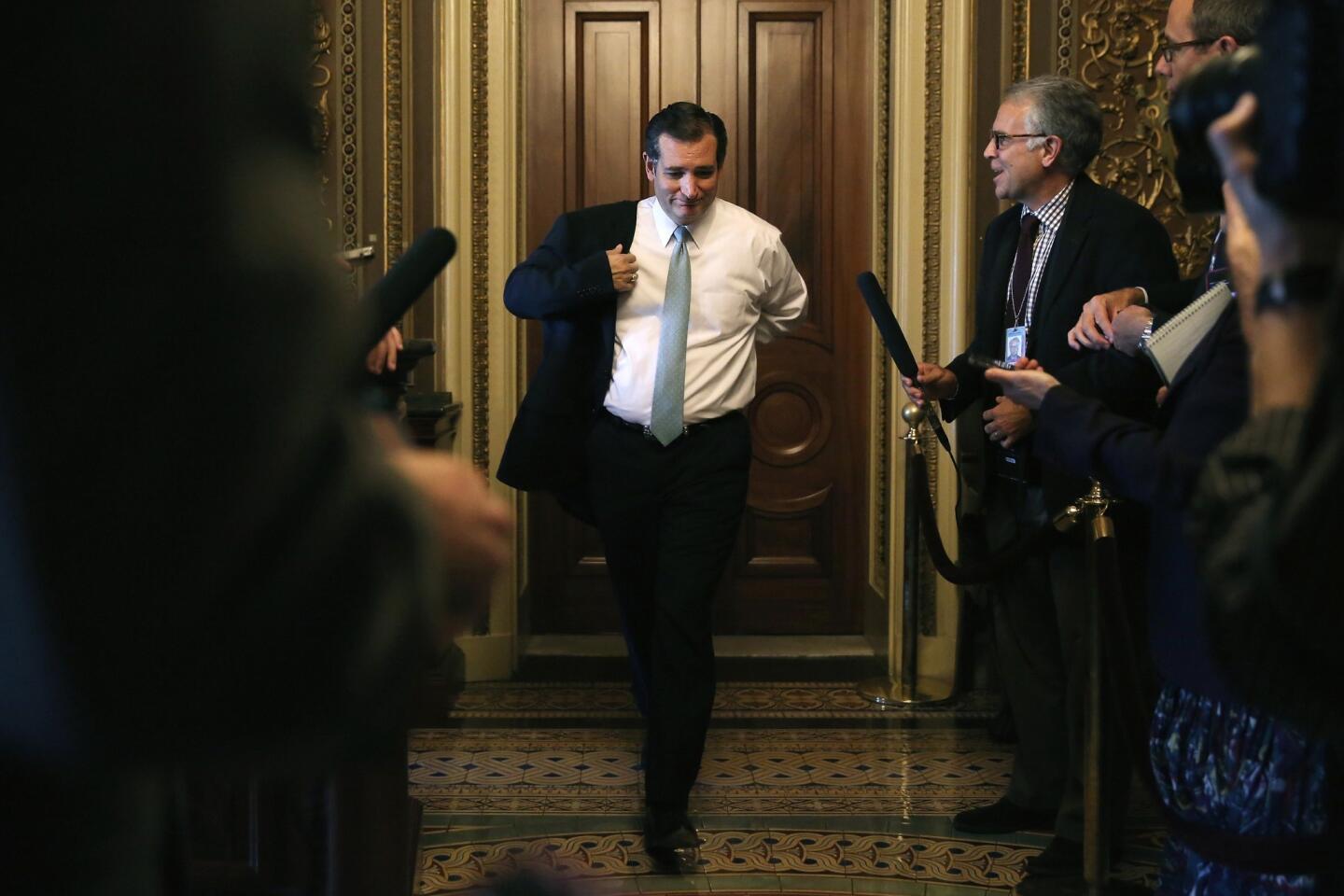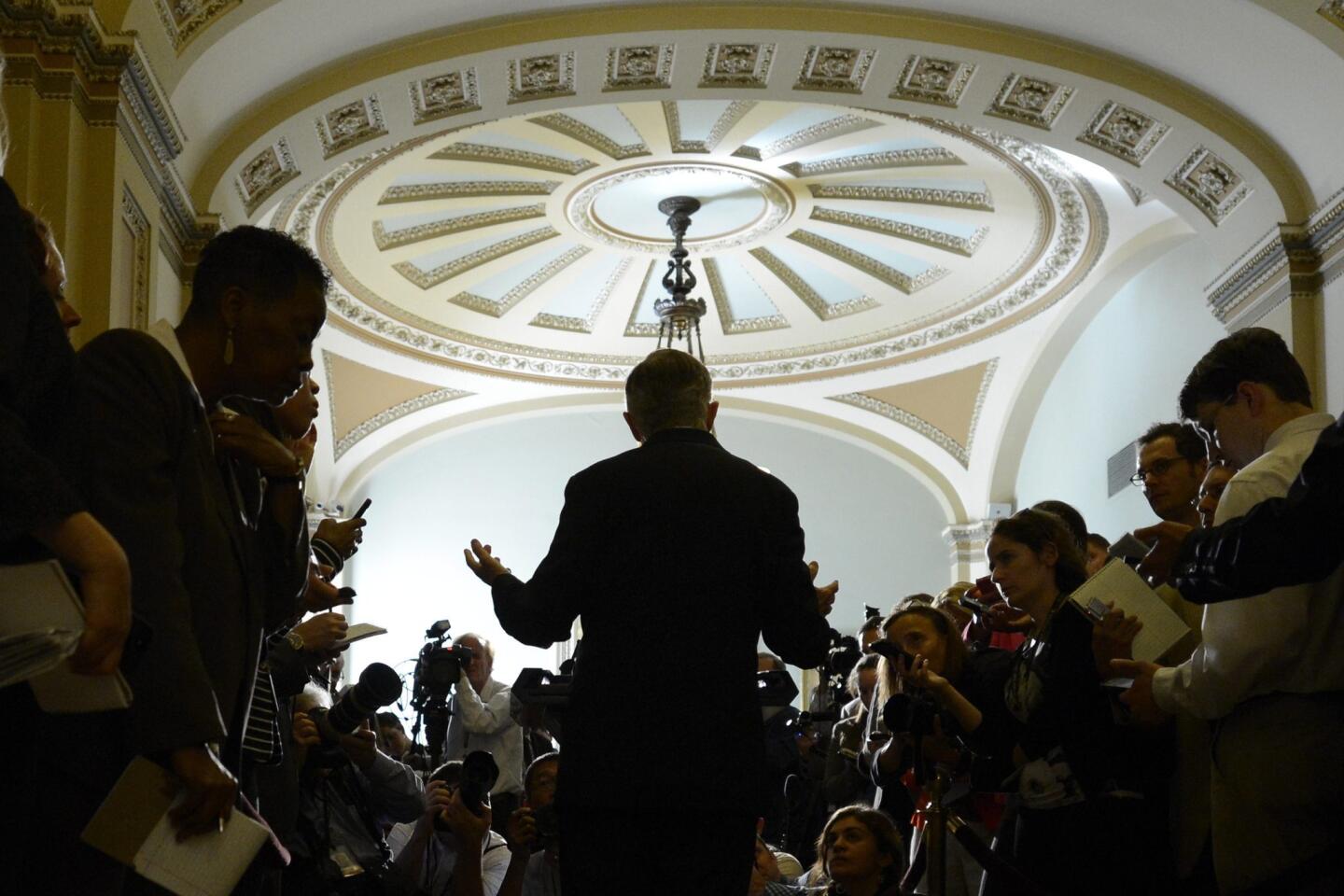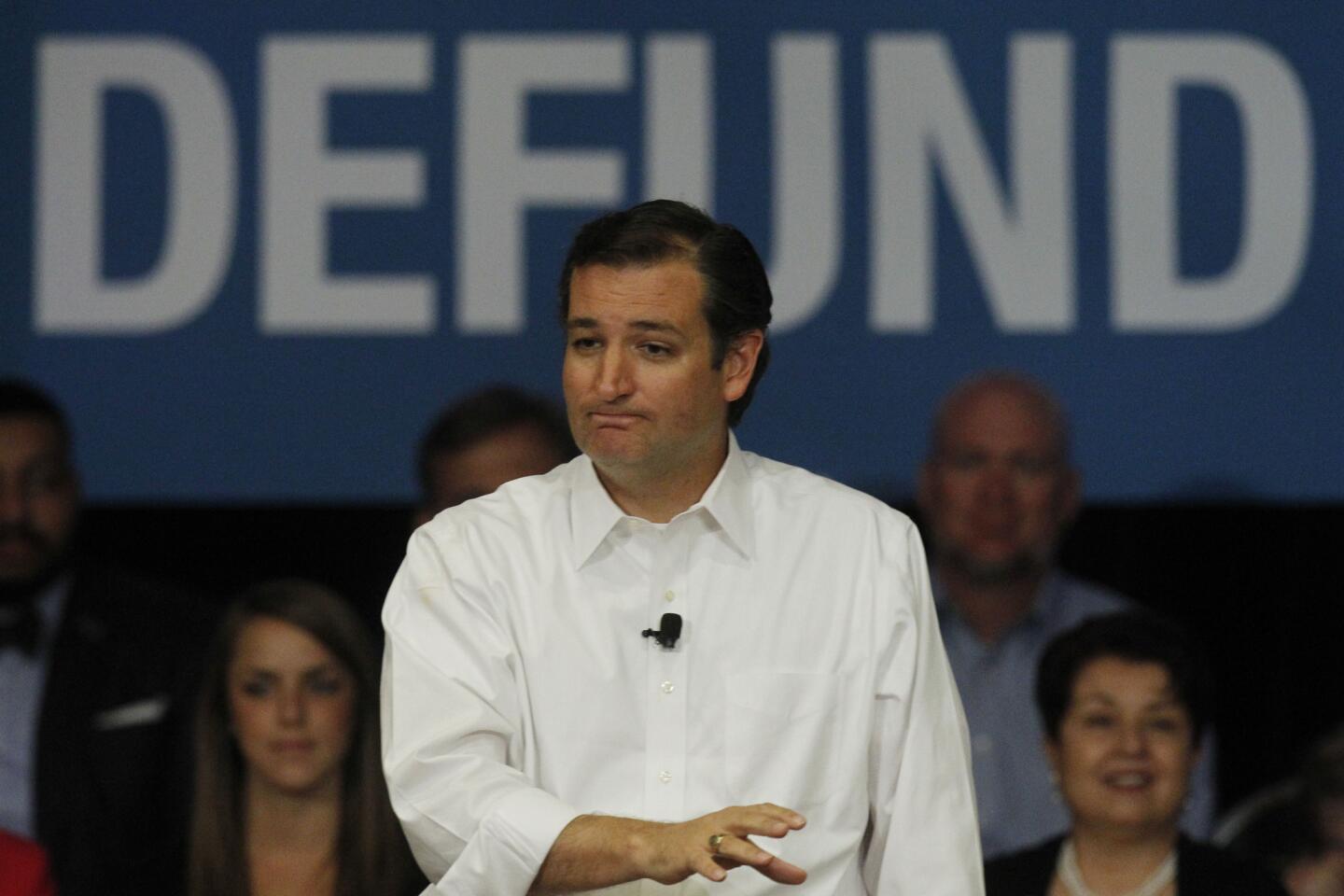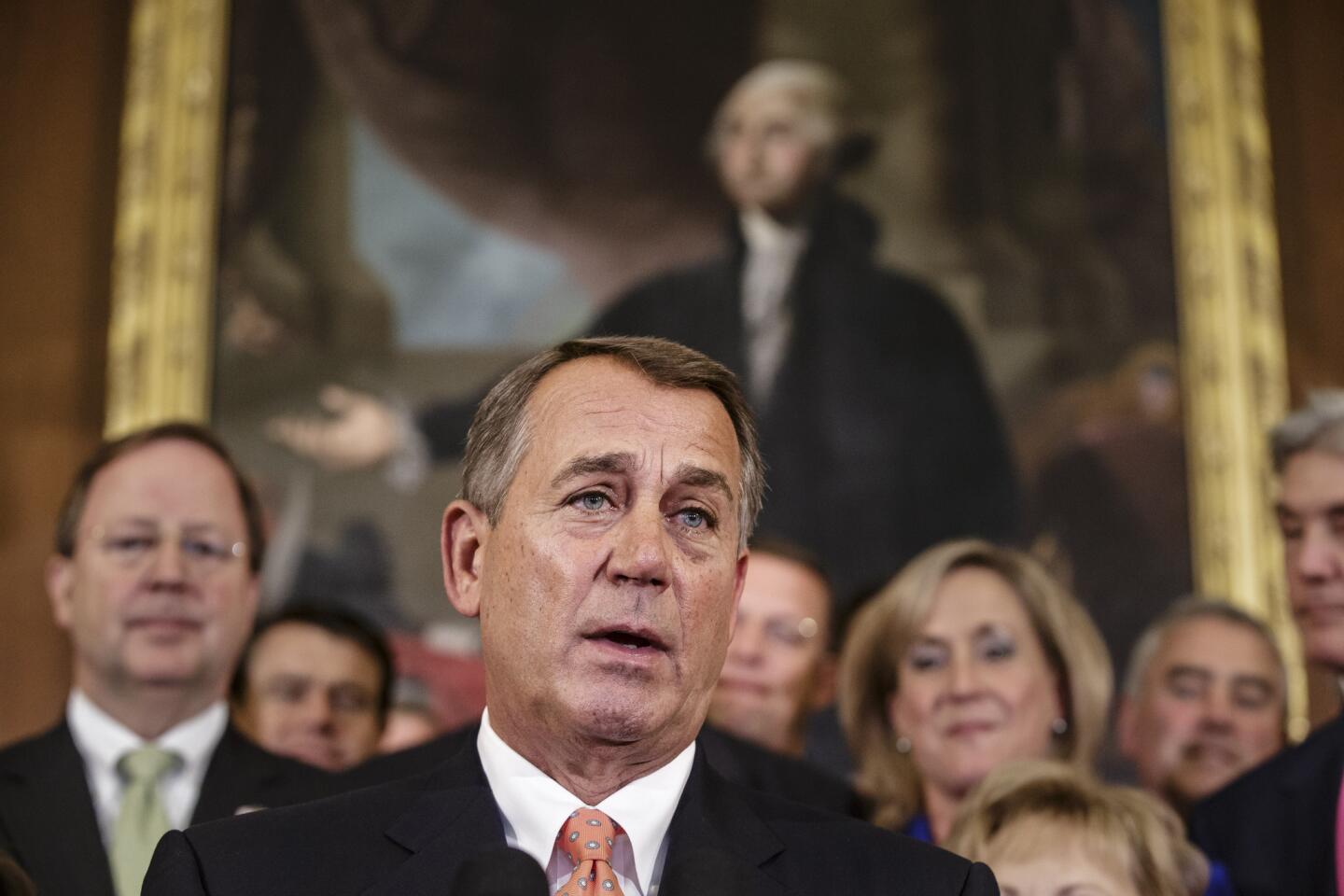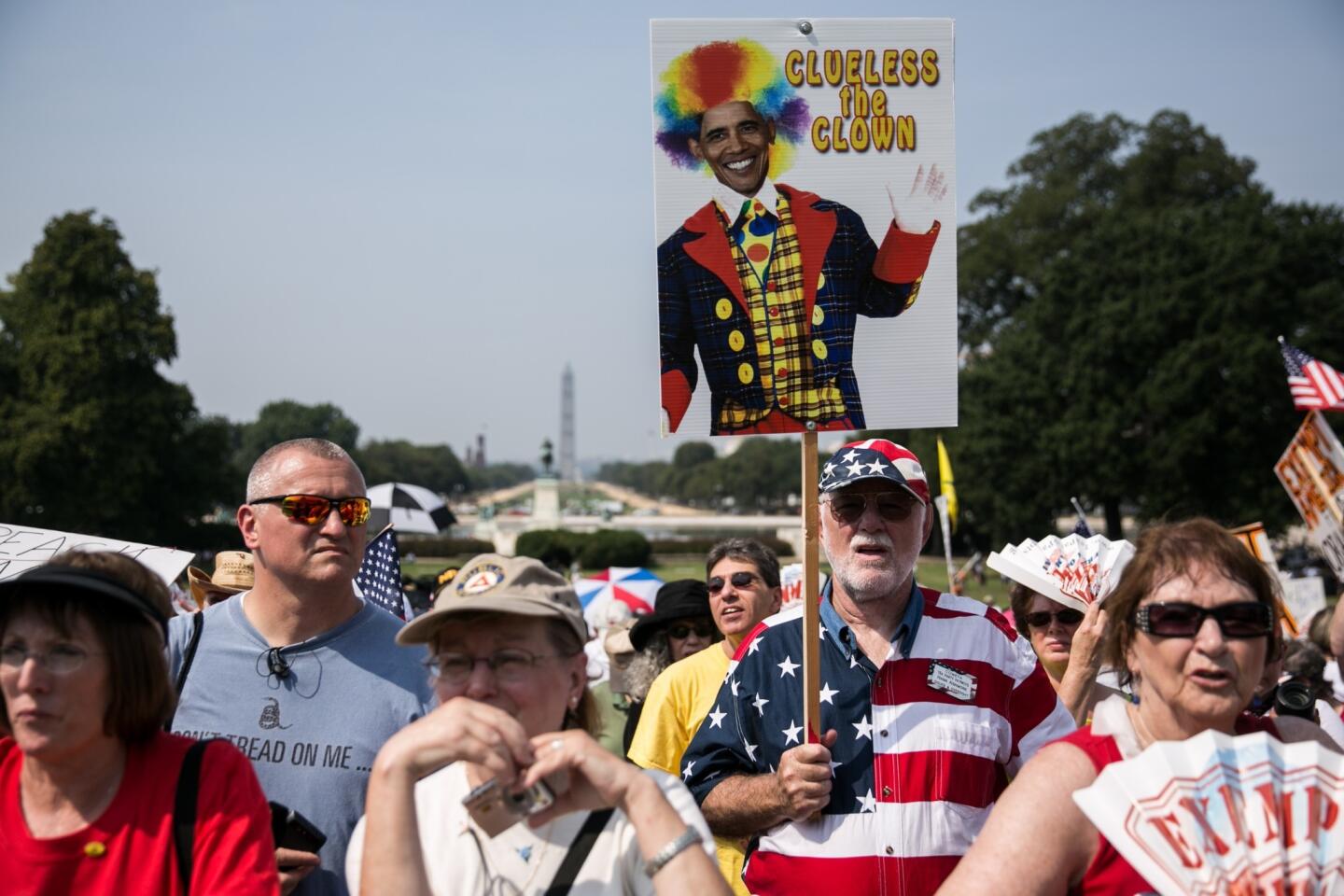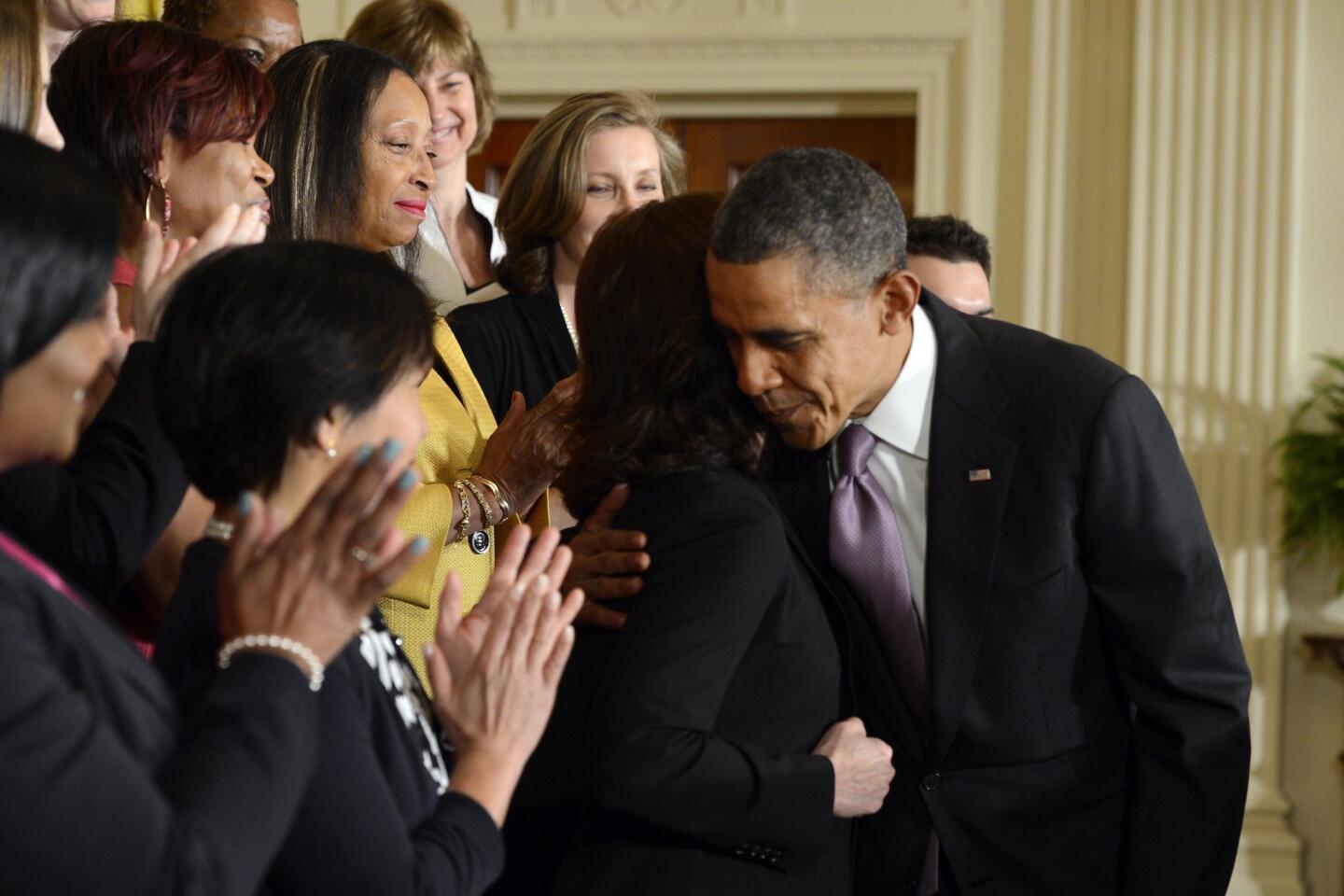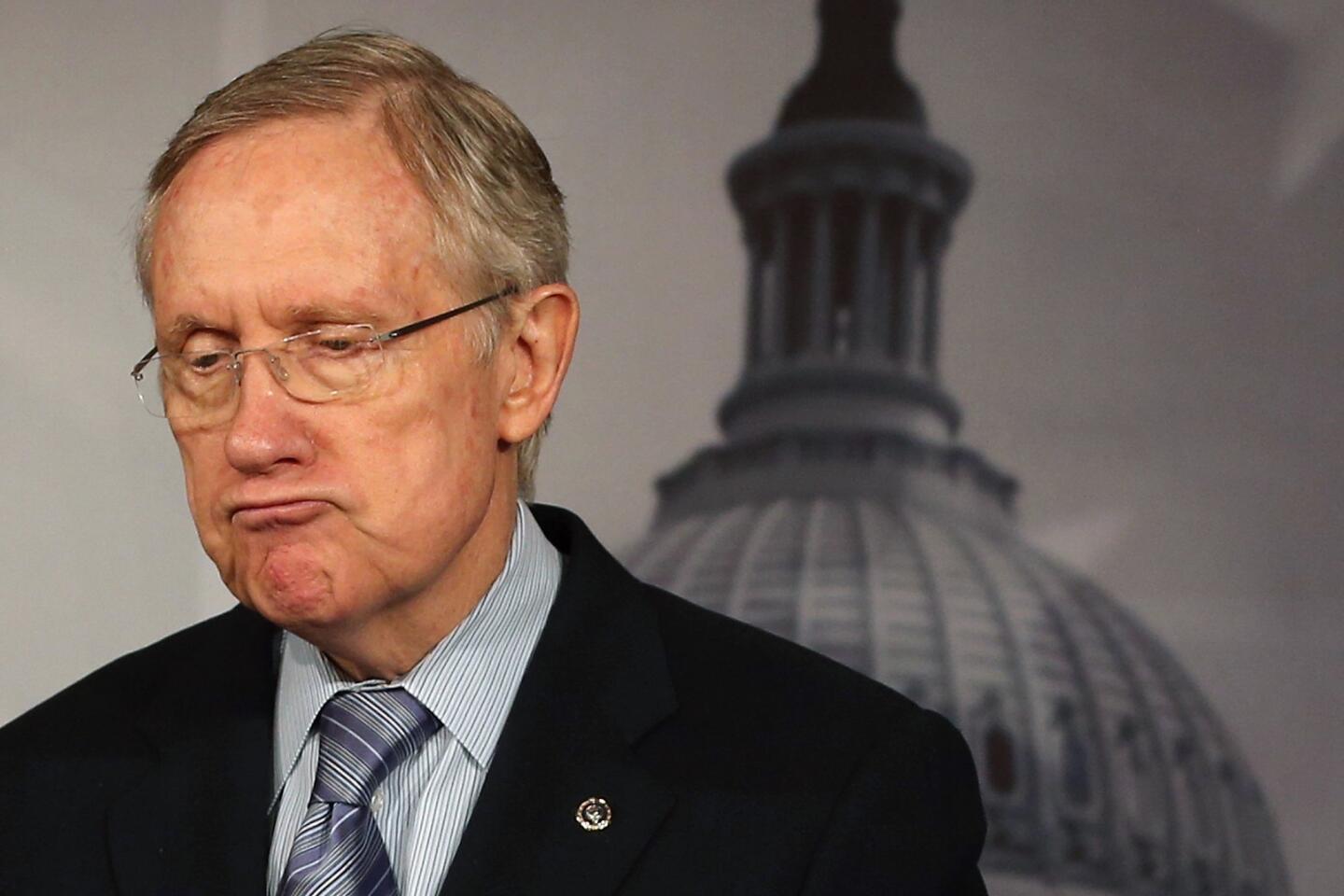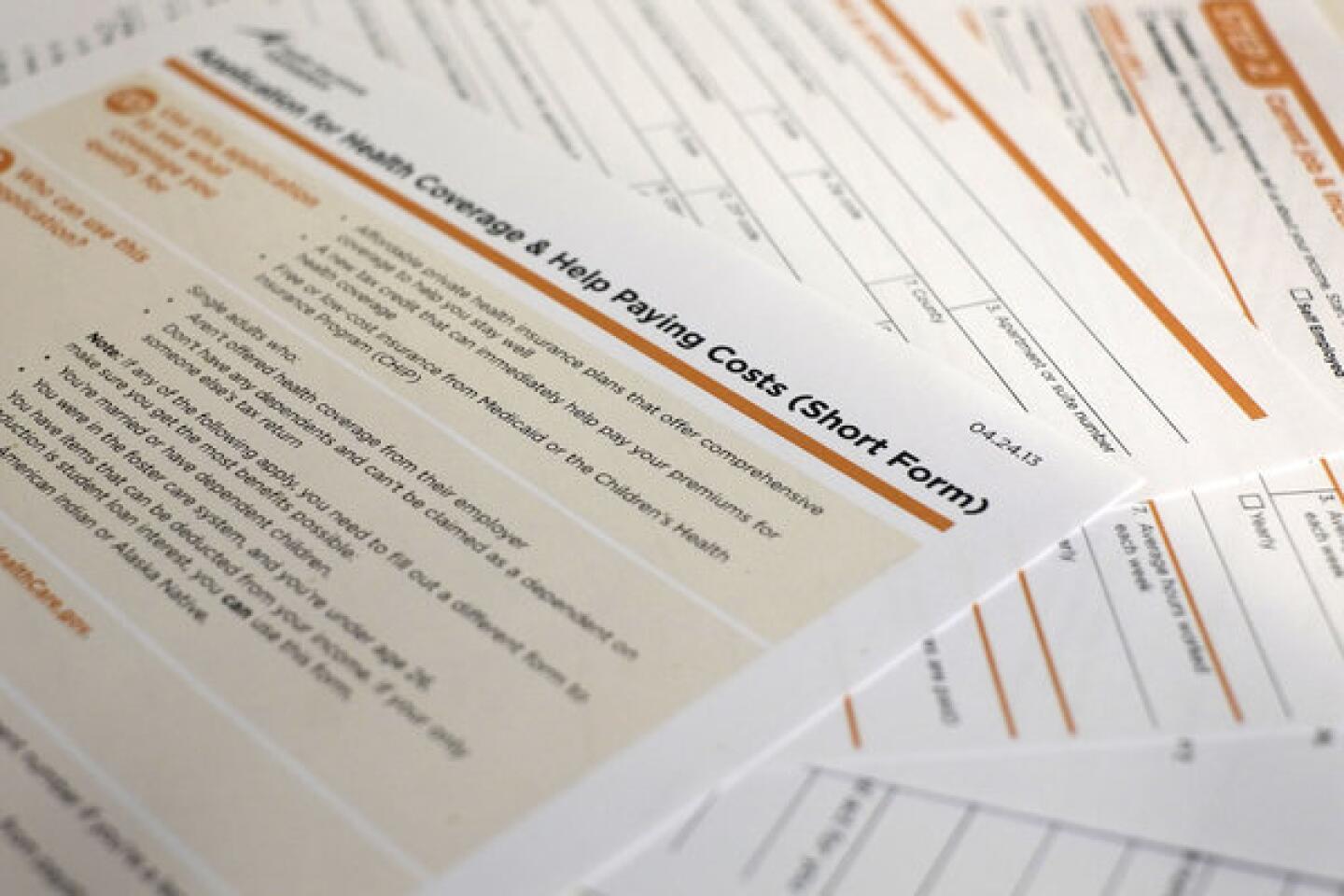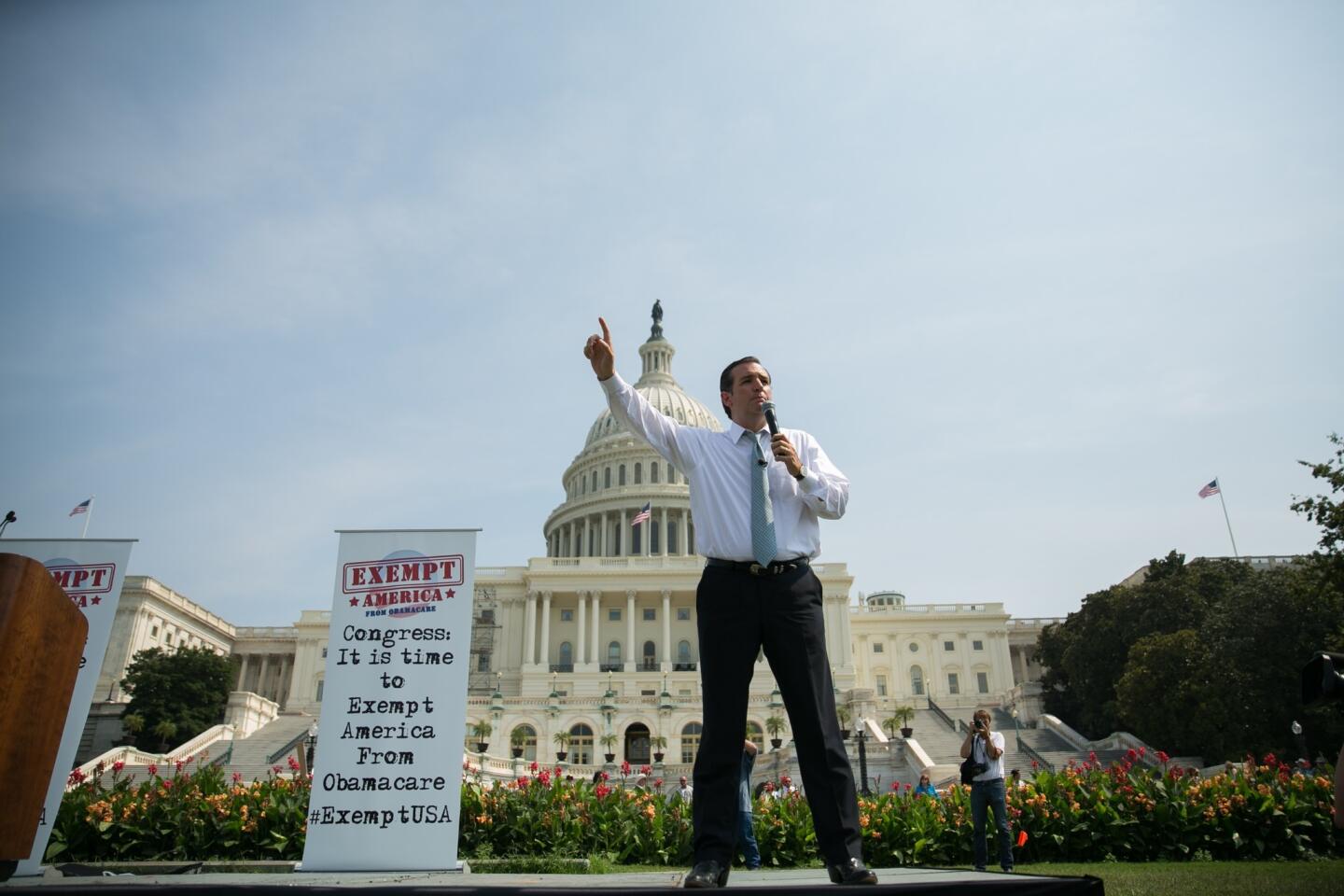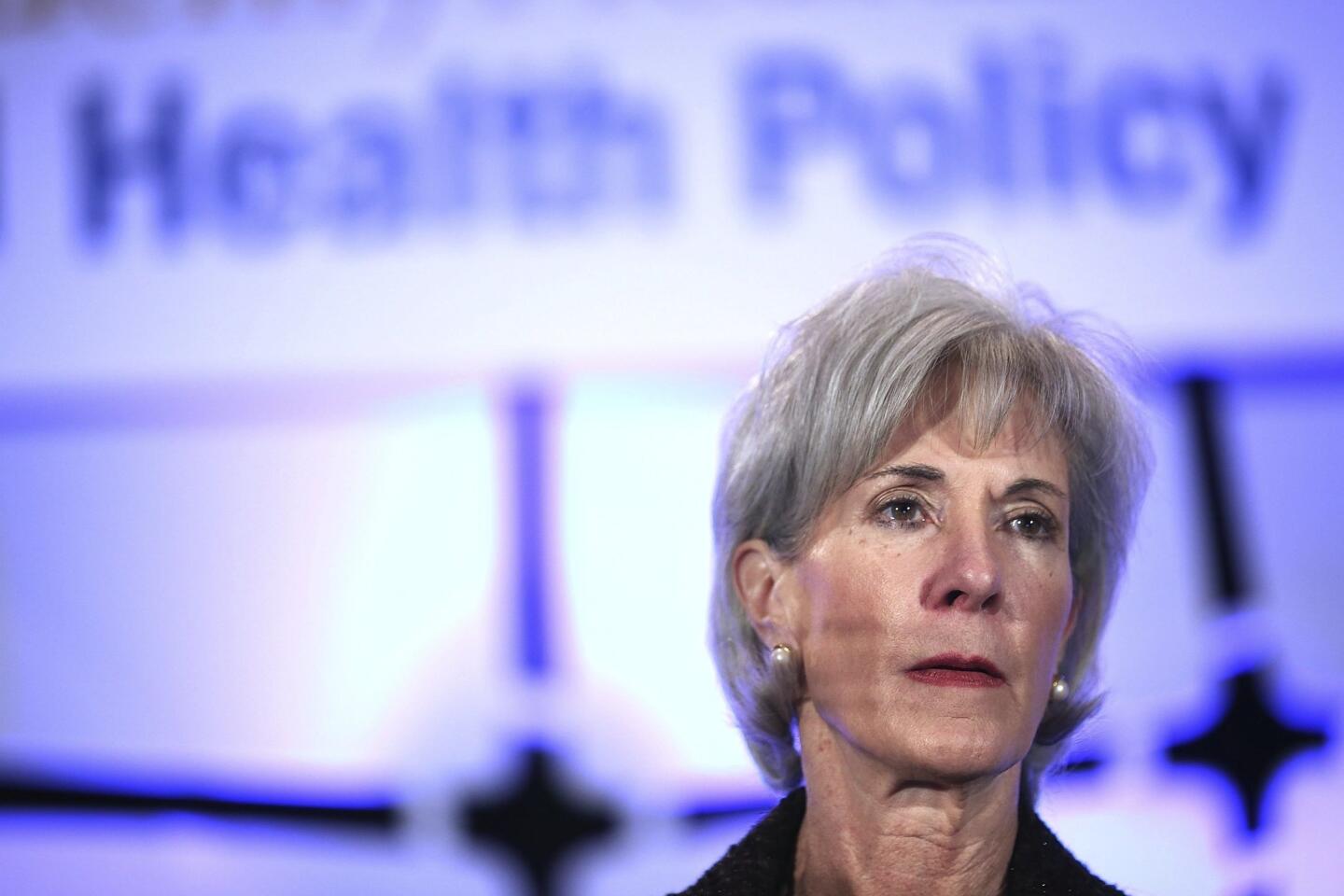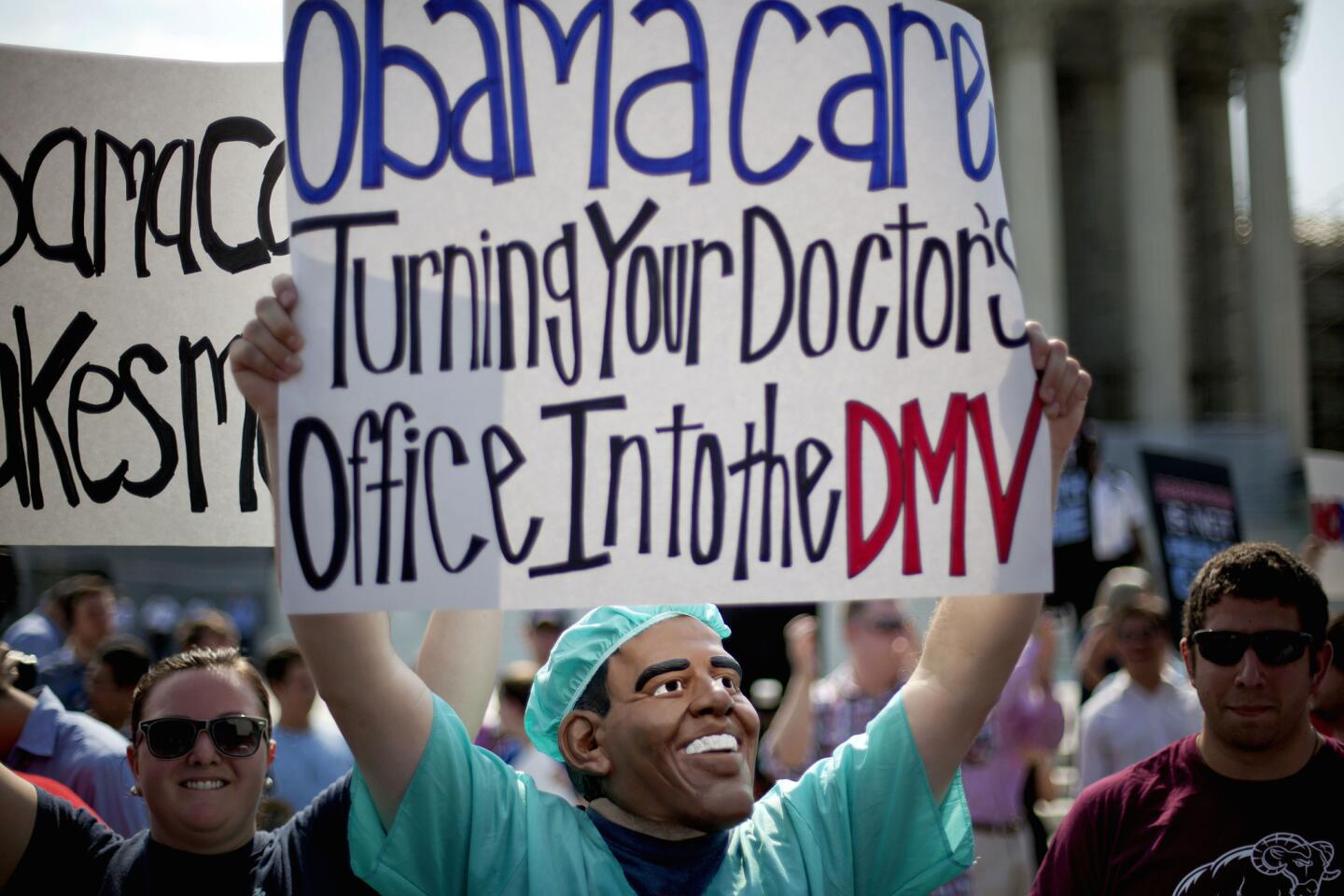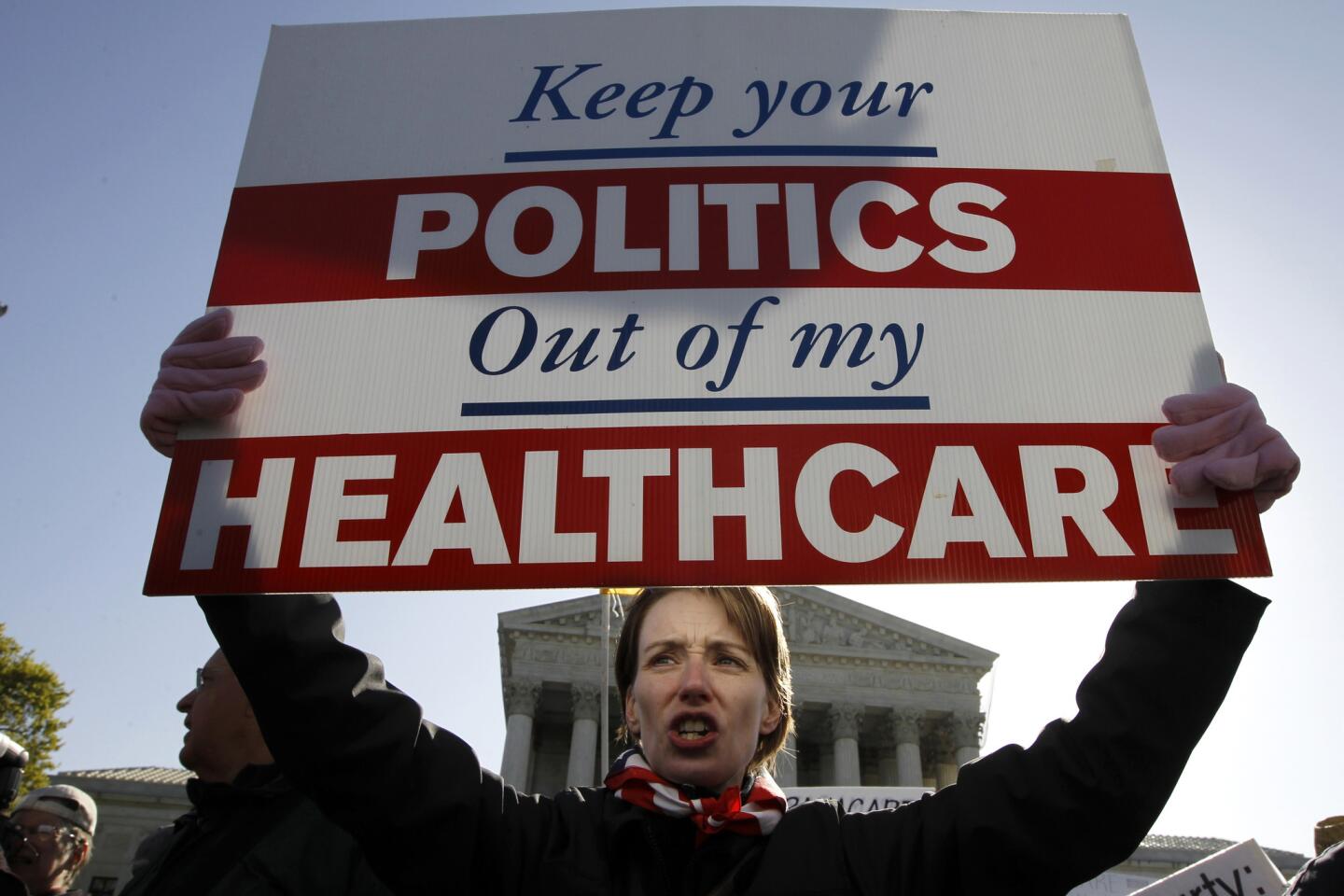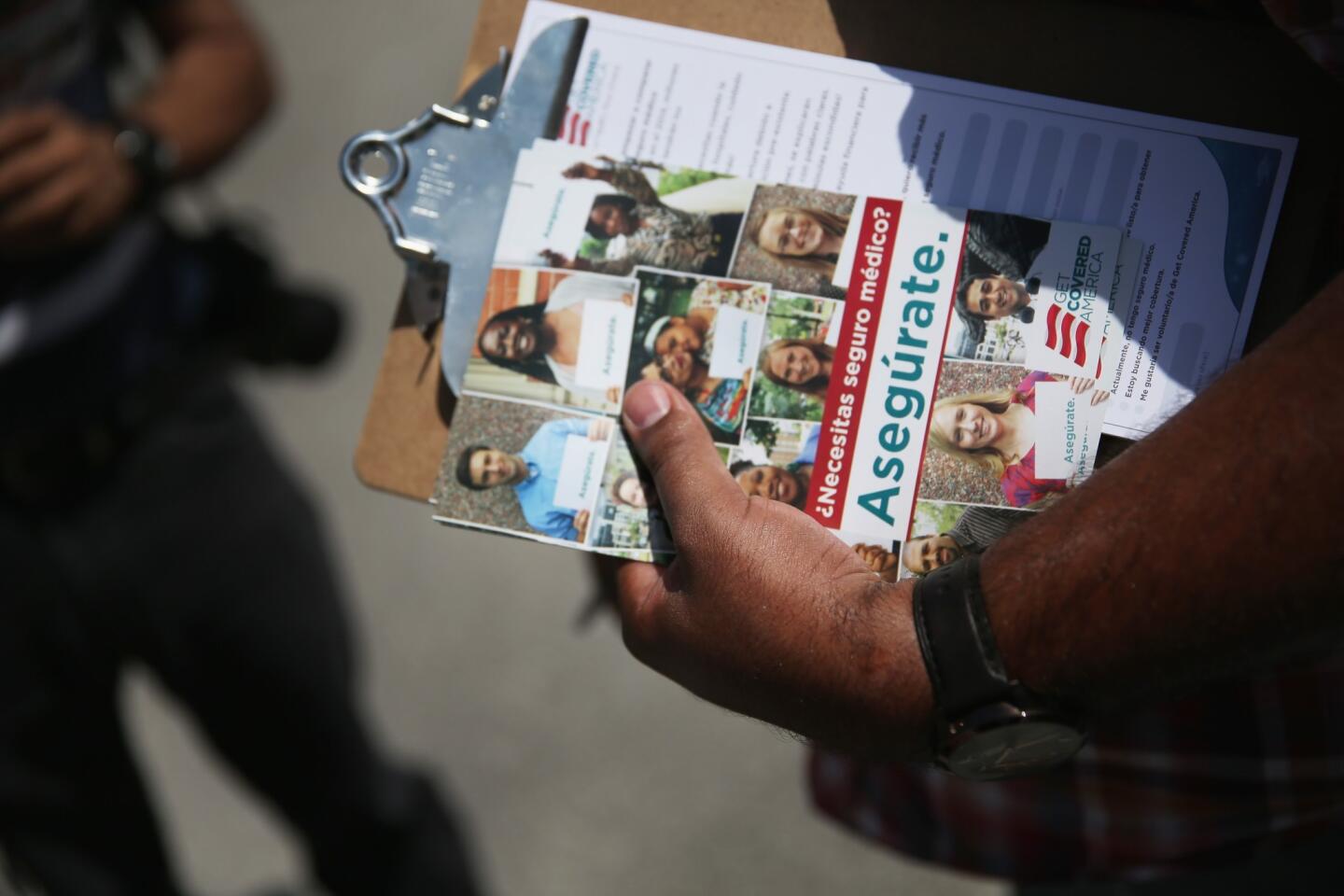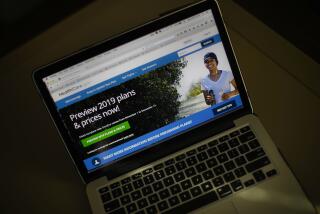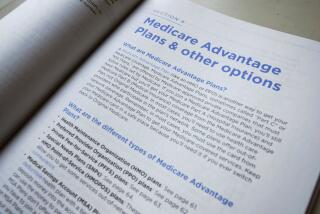As key parts of Obamacare kick in, the stakes are high for both parties
WASHINGTON — The debate over President Obama’s signature healthcare law enters a crucial phase this week as the real effect on consumers starts to come into focus after more than 3 1/2 years of partisan claims and counter-claims.
For both sides in the protracted battle over what has come to be called Obamacare, it is a moment of political peril.
The president has staked his legacy on tens of millions of Americans who don’t get health benefits at work being able to start signing up for insurance coverage, even if they have a preexisting medical problem.
A meltdown in this new system would be politically damaging for Obama and his Democratic allies, who have said since the law passed in 2010 that Americans would embrace the Affordable Care Act once they realized its benefits.
PHOTOS: 2013’s memorable political moments
For Republicans, the stakes also are high. Warning of an impending catastrophe, the GOP has waged an unprecedented campaign to stop the law from taking effect — including the current threat to shut down much of the federal government if Obama does not yield. A relatively drama-free rollout of the law this fall could shatter what has been a key pillar of the Republican agenda.
More worrisome still to some Republican strategists: The law’s new benefits may prove popular with millions of Americans who have been unable to get health insurance.
“We are replacing years of fighting with a reality, and that reality will shape public attitudes from here forward,” said Bill McInturff, a veteran Republican pollster. “If it works, attitudes about the law could change. But this country will have limited patience and tolerance if it doesn’t.”
Enrollment is scheduled to begin Tuesday in new state-based insurance marketplaces authorized by the law. Consumers who don’t get health benefits at work will be able to shop on the marketplaces for health plans, which must provide a new basic set of protections. The coverage will take effect Jan. 1.
Few on either side think opinions will change overnight, as a relatively small number of consumers will initially use these markets. Only about 7 million people are expected to enroll in 2014, rising to 25 million by 2018, according to the nonpartisan Congressional Budget Office. An additional 12 million low-income Americans ultimately will sign up for government Medicaid programs under the law, the budget office says.
By contrast, more than 160 million people will continue to get health benefits through the decades-old system of employer-sponsored coverage, according to the projections.
PHOTOS: Team Obama, where are they now?
Obama and his allies, however, are counting on a gradual transformation in public opinion. As millions of Americans get guaranteed health insurance and begin sharing personal stories with friends and neighbors, what has largely been a political debate will start transforming into a discussion about consumer experiences, they believe.
Supporting this effort, a vast network of grass-roots groups, some linked directly to Obama’s 2012 reelection campaign, have fanned out across the country to enroll consumers in health coverage.
The president himself appealed directly to Americans in a fiery speech last week touting the healthcare law.
“You don’t need to listen to the politicians. You don’t need to listen to me. Just go check it out for yourself,” he told an audience of supporters in suburban Washington.
“I promise you, if you go on the website and it turns out you’re going to save $100, $200, $300 a month on your insurance, or you’ll be able to buy insurance for the first time, even if you didn’t vote for me, I’ll bet you’ll sign up.”
Even some Republicans believe that once consumers get assistance from the law, those benefits will become popular, making repeal all but impossible.
“The reality is that once people actually get health insurance, we are going to see stories of how it improved people’s health, even saved lives,” said William Pierce, a former George W. Bush administration official who worked on implementation of the Medicare Part D program a decade ago.
Part D, which enables seniors to get a private prescription drug plan through Medicare, was viewed unfavorably by more than half of seniors after Republicans enacted it in 2003 over the objections of most Democrats. Initial reports of confusion and technical problems when the program rolled out in 2005 further depressed public support.
Today, the prescription drug benefit is widely seen as a runaway success, with 9 in 10 seniors reporting they are satisfied with their coverage, according to a recent poll by the Healthcare Leadership Council, a coalition of leading healthcare companies.
One provision of Obama’s health law expands the Part D program by gradually closing a gap in coverage known as the doughnut hole.
Tevi Troy, another former Bush administration official and senior healthcare advisor to former Massachusetts Gov. Mitt Romney’s 2012 presidential campaign, said the possibility of a similar change in views of the Affordable Care Act drove Romney to develop meticulous plans for stopping the law if he was elected.
“We knew … a Rubicon would be crossed” if the law took effect, Troy said. Like many Republicans, Troy believes the law, even if it proves popular, will drive up costs, pushing the federal government deeper into debt.
The law continues to engender fierce partisan opposition, with just 1 in 10 Republicans holding a favorable view, according to a September tracking poll from the nonpartisan Kaiser Family Foundation.
Republican leaders have already begun using Obamacare attacks to target Democratic lawmakers up for reelection in red states in 2014, including senators from Alaska, Arkansas, Louisiana and North Carolina. That playbook helped Republicans capture the House in the 2010 midterm election, when shell-shocked Democrats largely tried to avoid talking about the law.
Even a relatively successful rollout probably will include enough glitches to sustain partisan opposition, public opinion experts say.
Indeed, the portions of the law that already have taken effect don’t appear to have changed many minds.
Several million young people have been able to remain on their parents’ health plans until they turn 26. Seniors have gotten relief on their prescription bills as the Part D drug coverage gap closes.
And millions of consumers qualified for rebates from their insurance companies under a provision that limits how much insurers can spend on nonmedical expenses, such as profits or executive salaries.
Yet public views of the law have barely budged in 3 1/2 years.
Nor are Americans optimistic that they will realize any benefits. Just 12% of respondents in a recent NBC/Wall Street Journal poll said the health law would have a positive effect on them or their family.
“It’s a bit of a mystery,” said Celinda Lake, a veteran Democratic pollster, who still believes that public views will change once the new insurance guarantee takes effect next year.
Looming as an even greater threat to Obama and other Democrats may be other changes that could be blamed on the law, such as rising costs or moves by more employers to stop offering health coverage to their employees.
“That could be very, very difficult for Democrats,” said McInturff, the Republican pollster. Those sorts of changes, if they occur on a widespread basis, could provide one of the most potent lines of attack for Republicans in next year’s congressional elections, he said.
More to Read
Start your day right
Sign up for Essential California for news, features and recommendations from the L.A. Times and beyond in your inbox six days a week.
You may occasionally receive promotional content from the Los Angeles Times.
